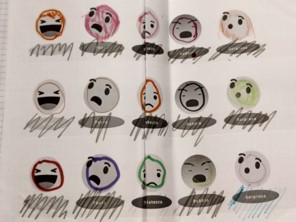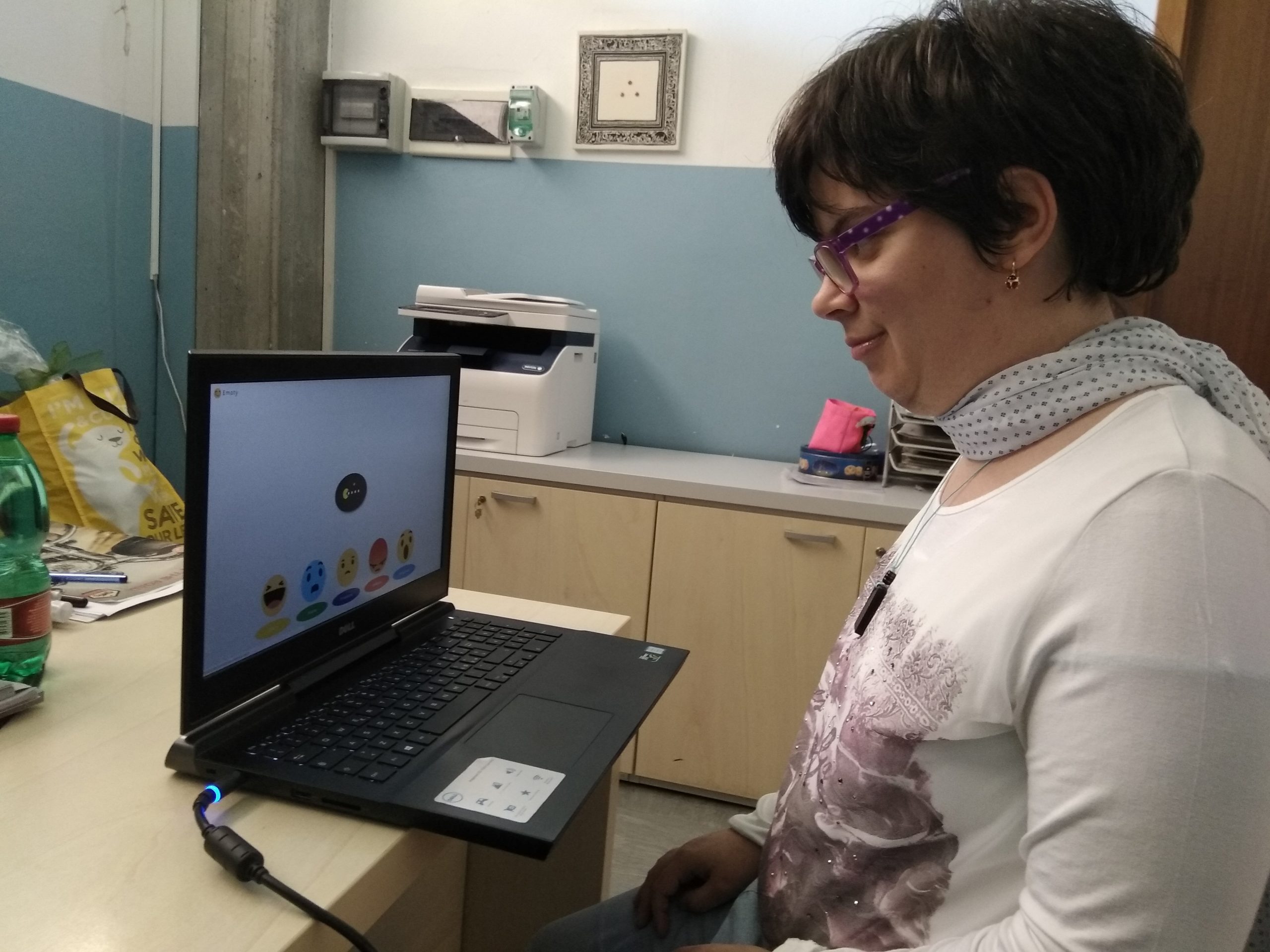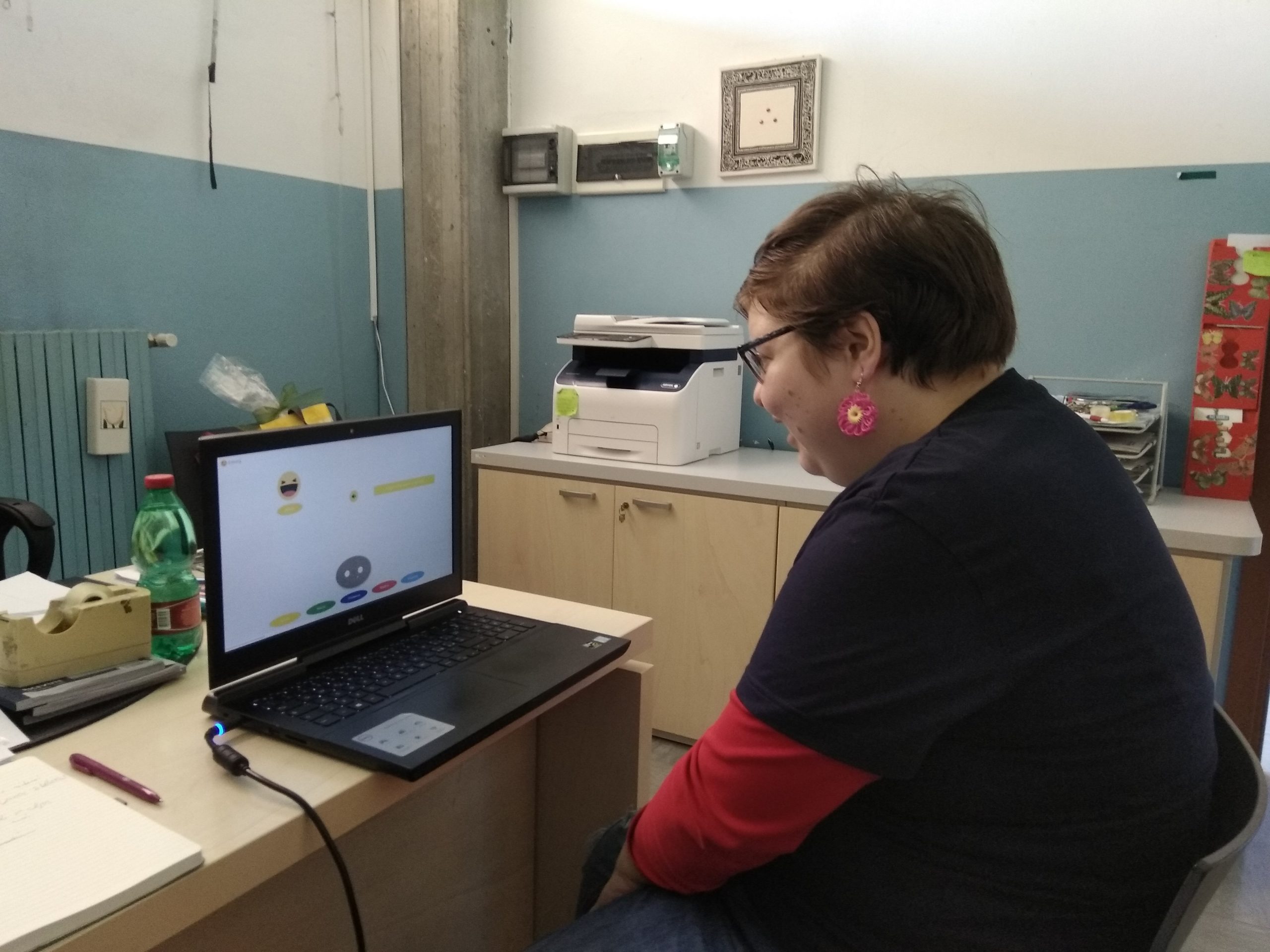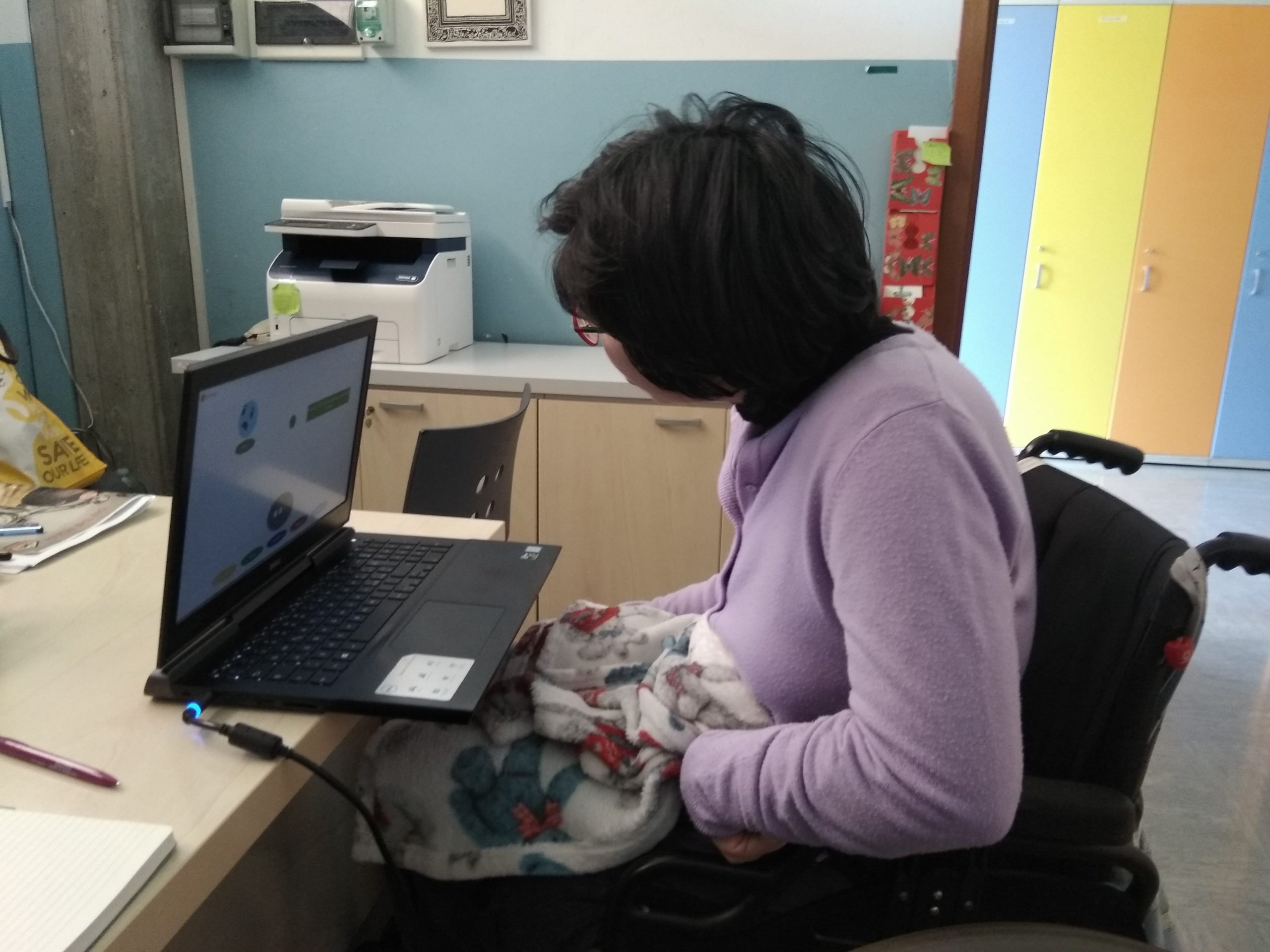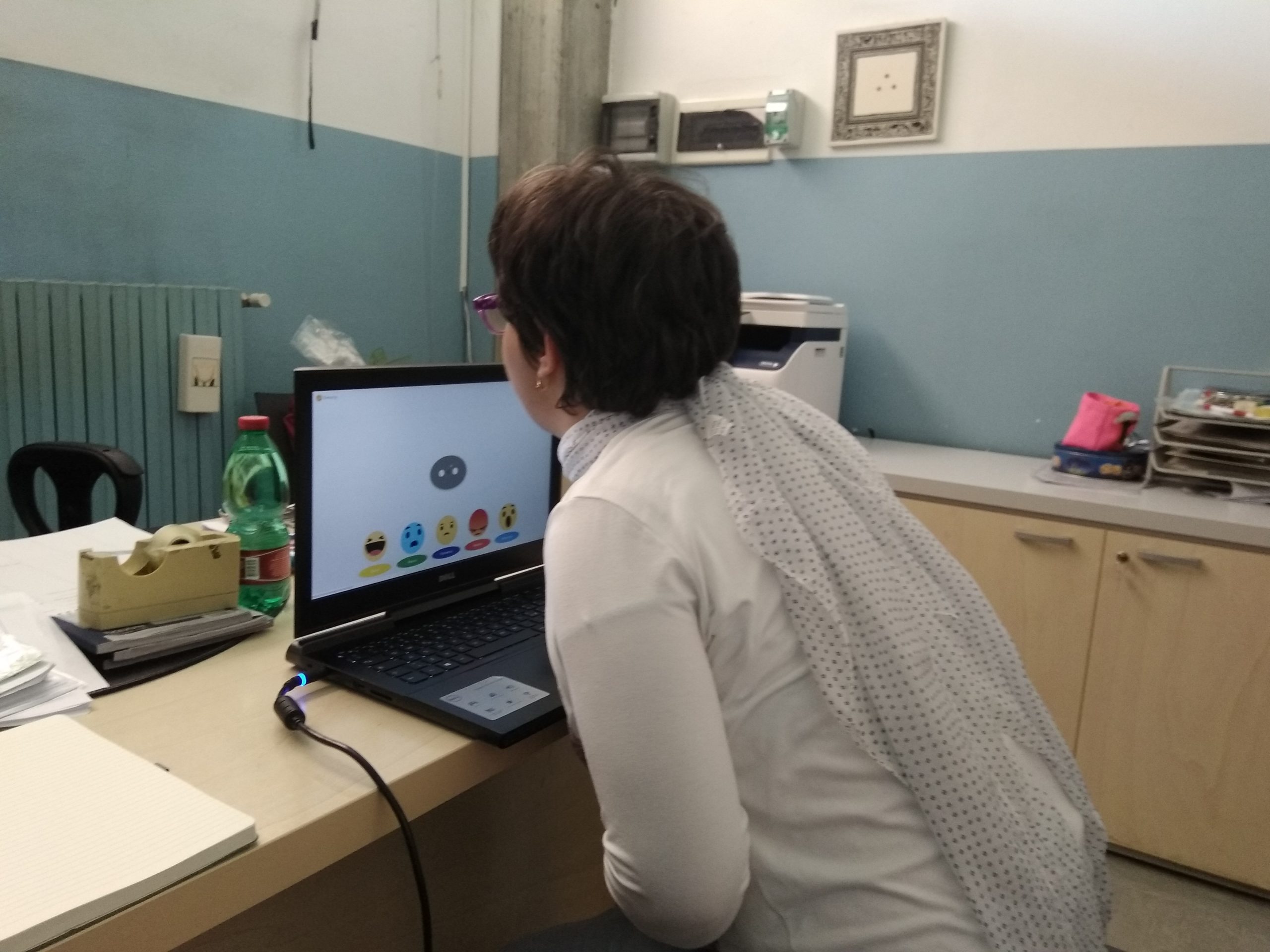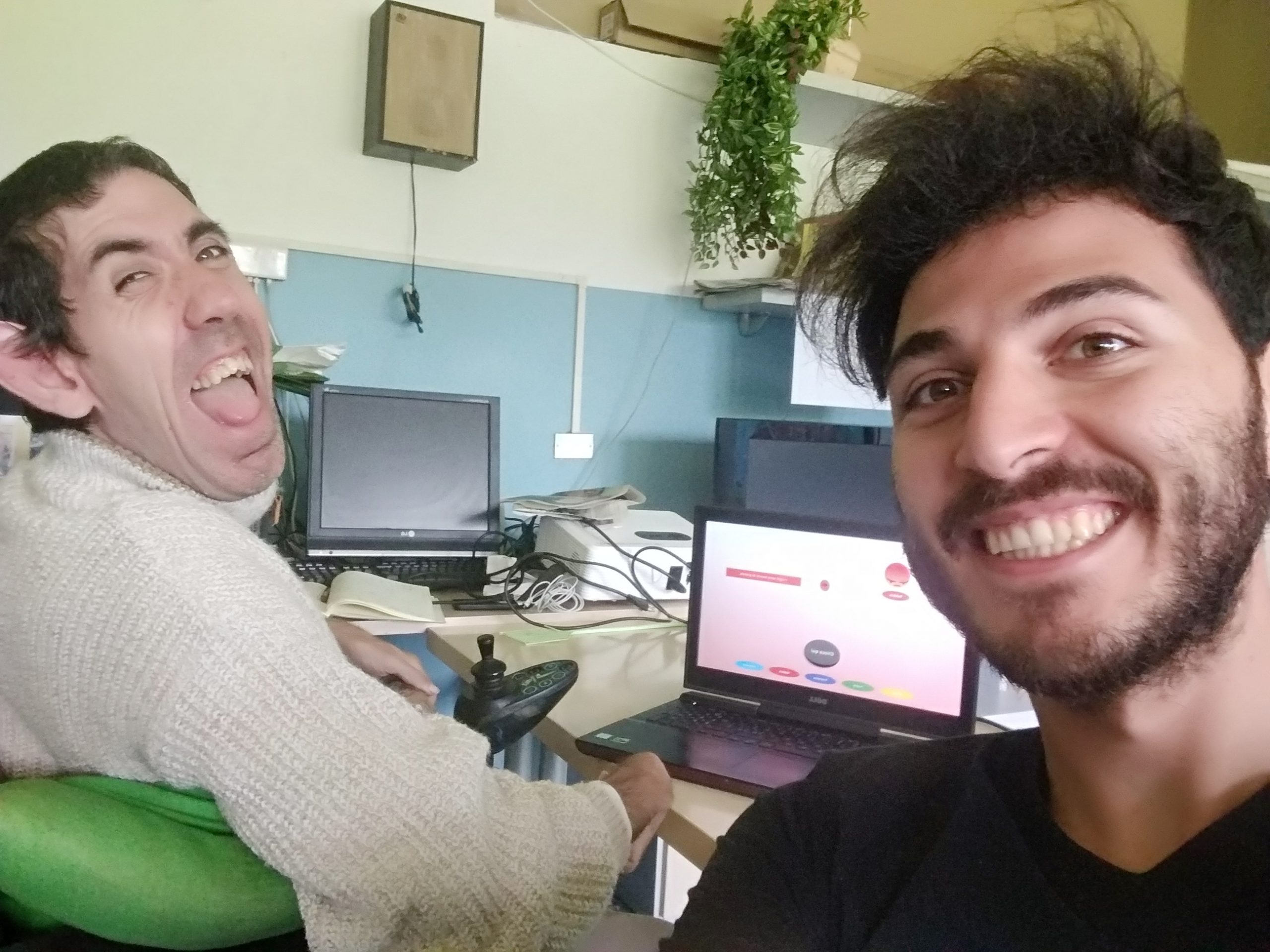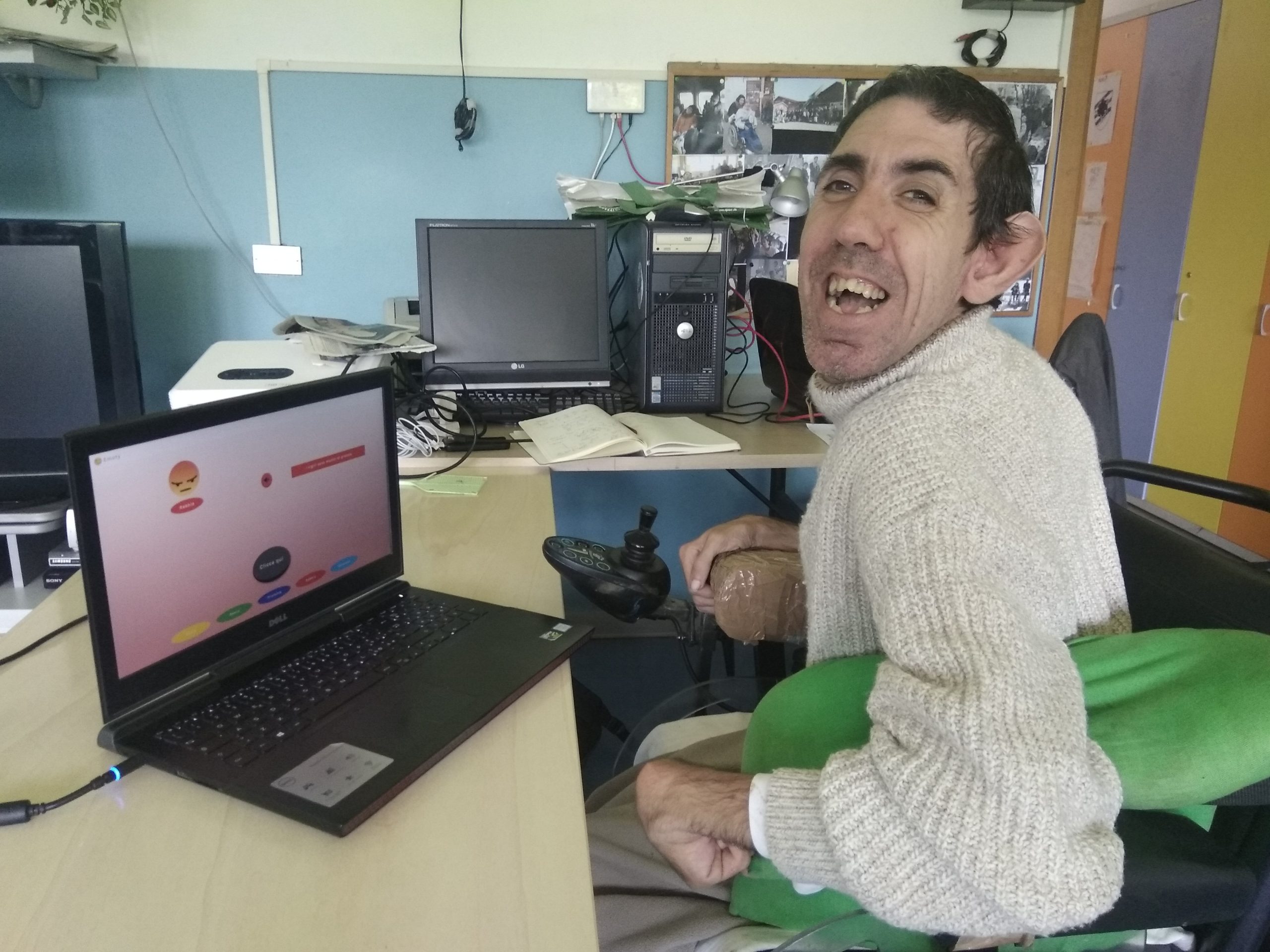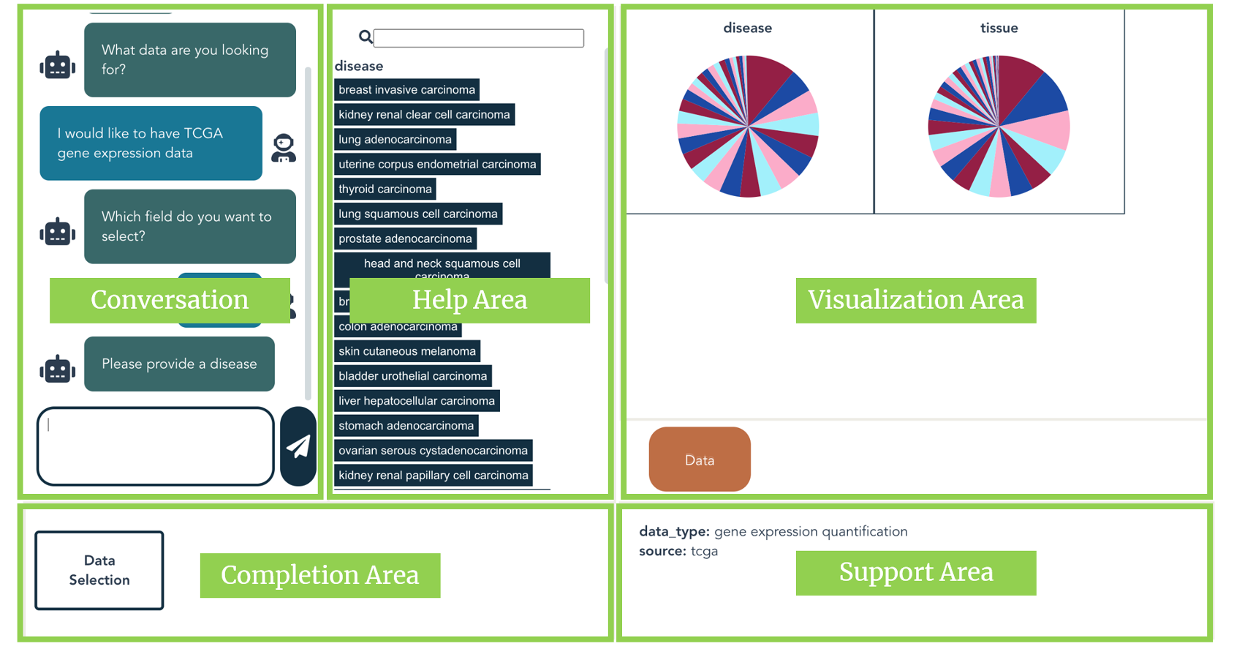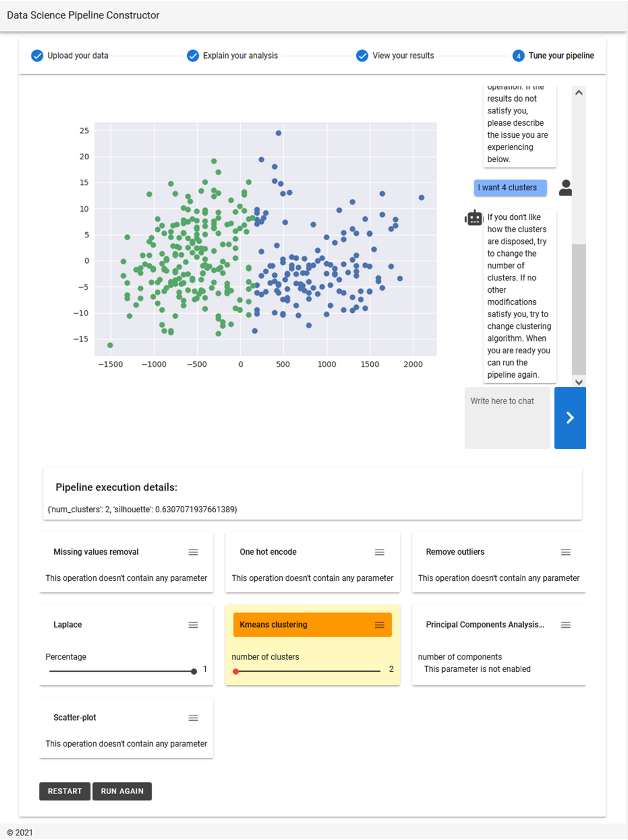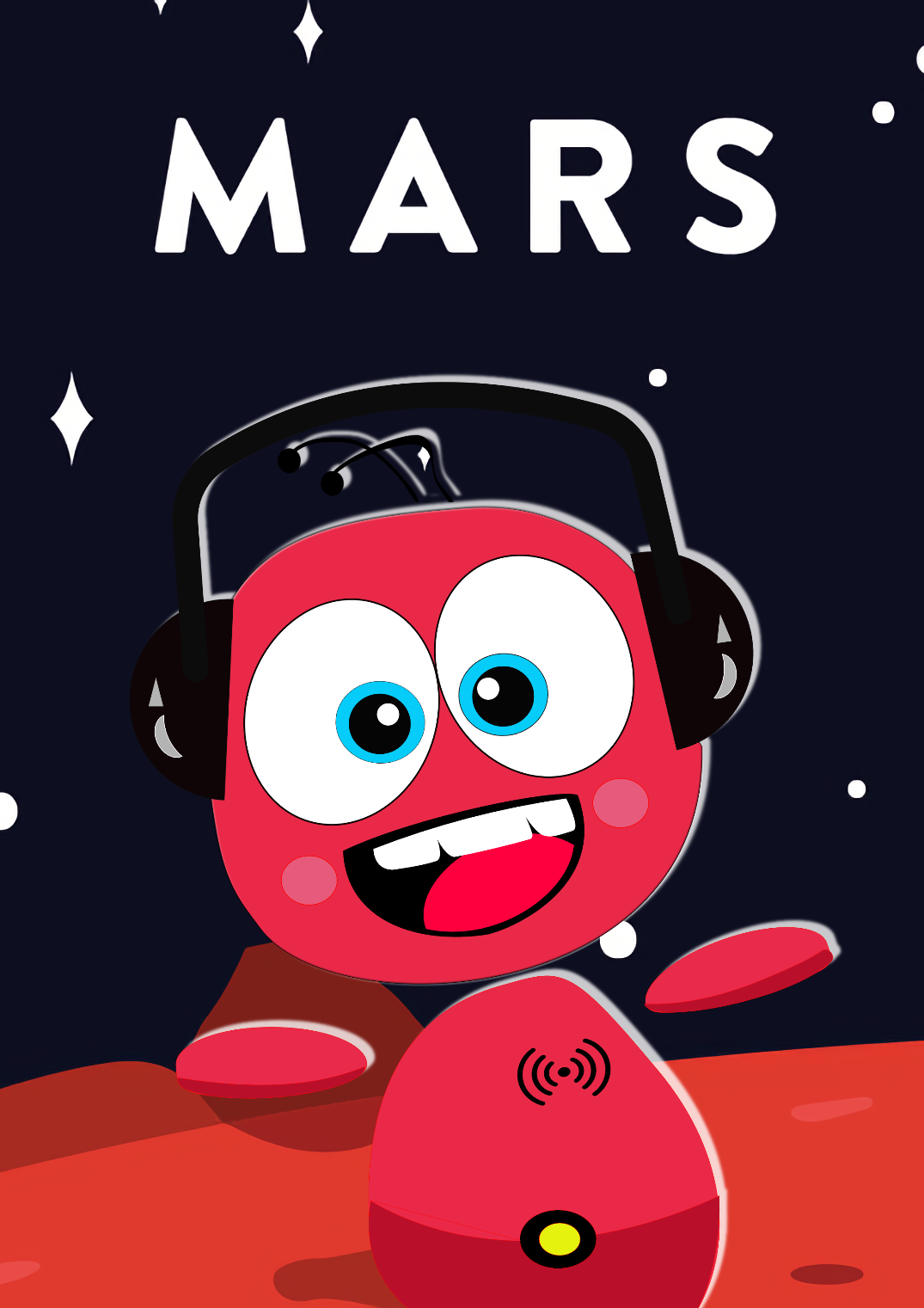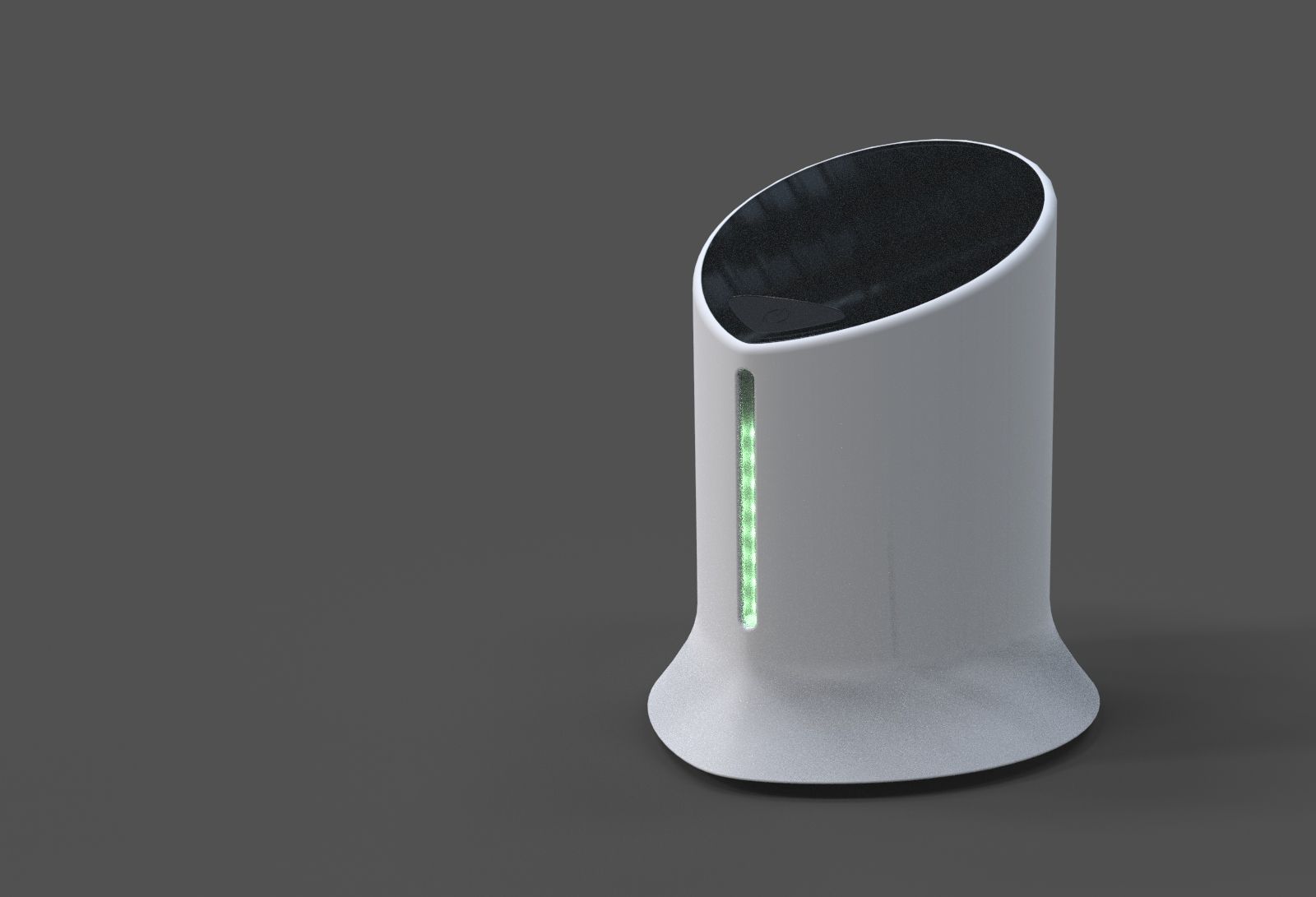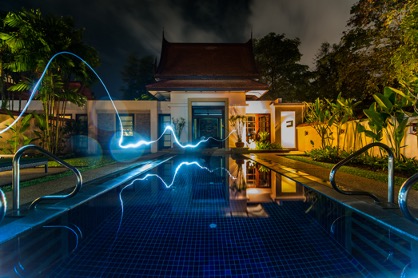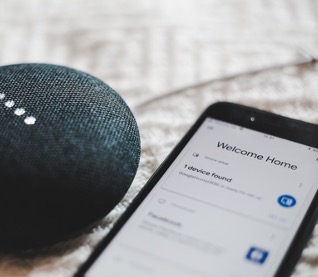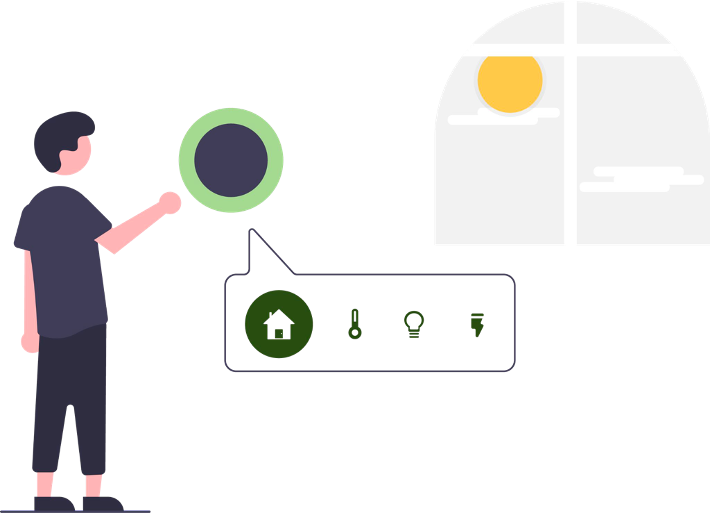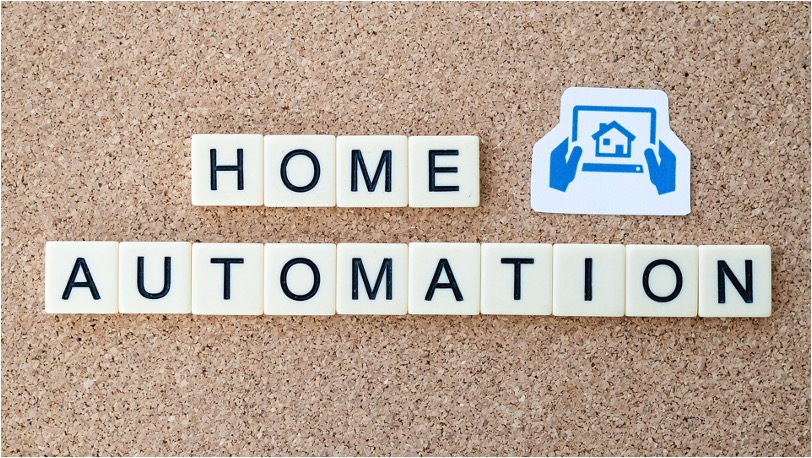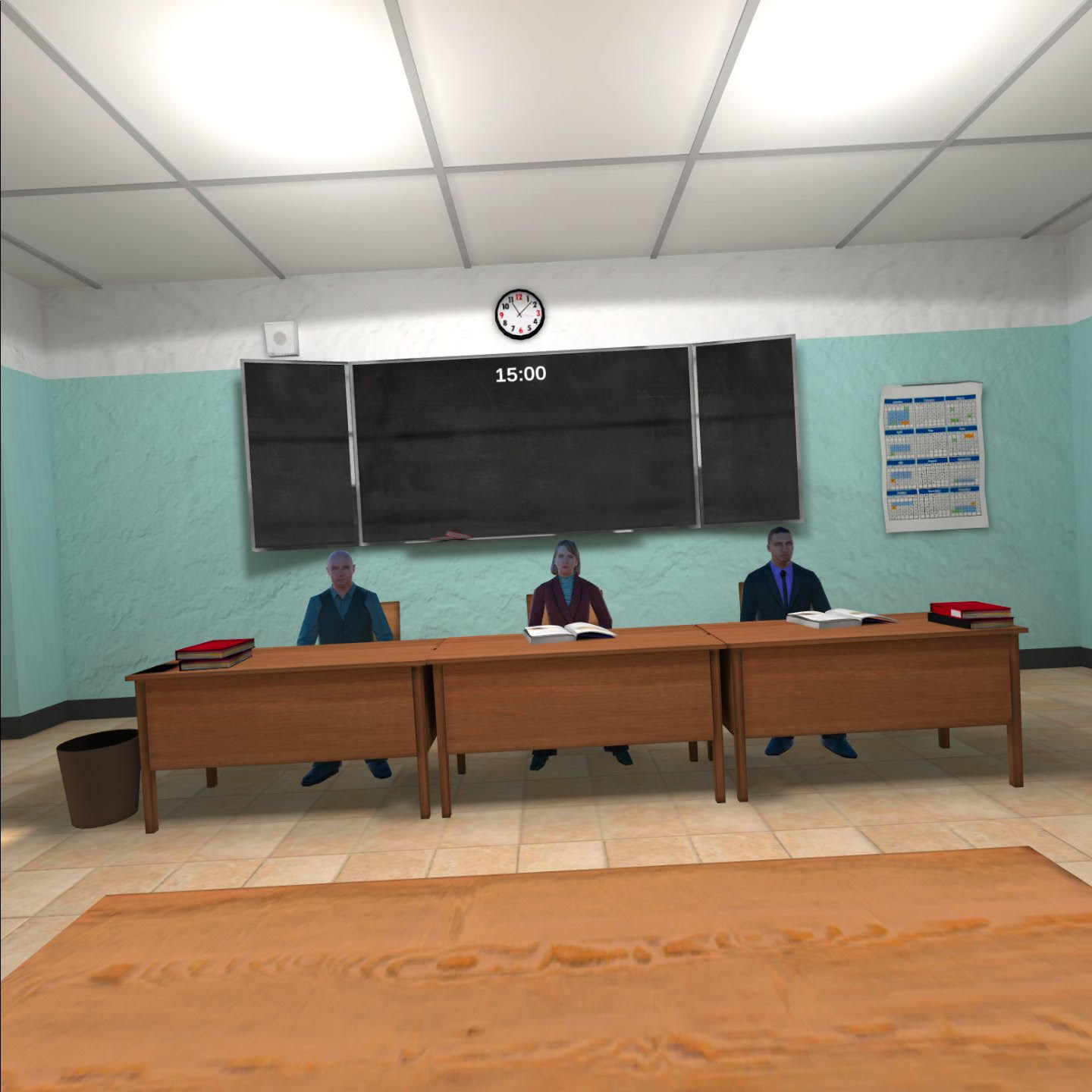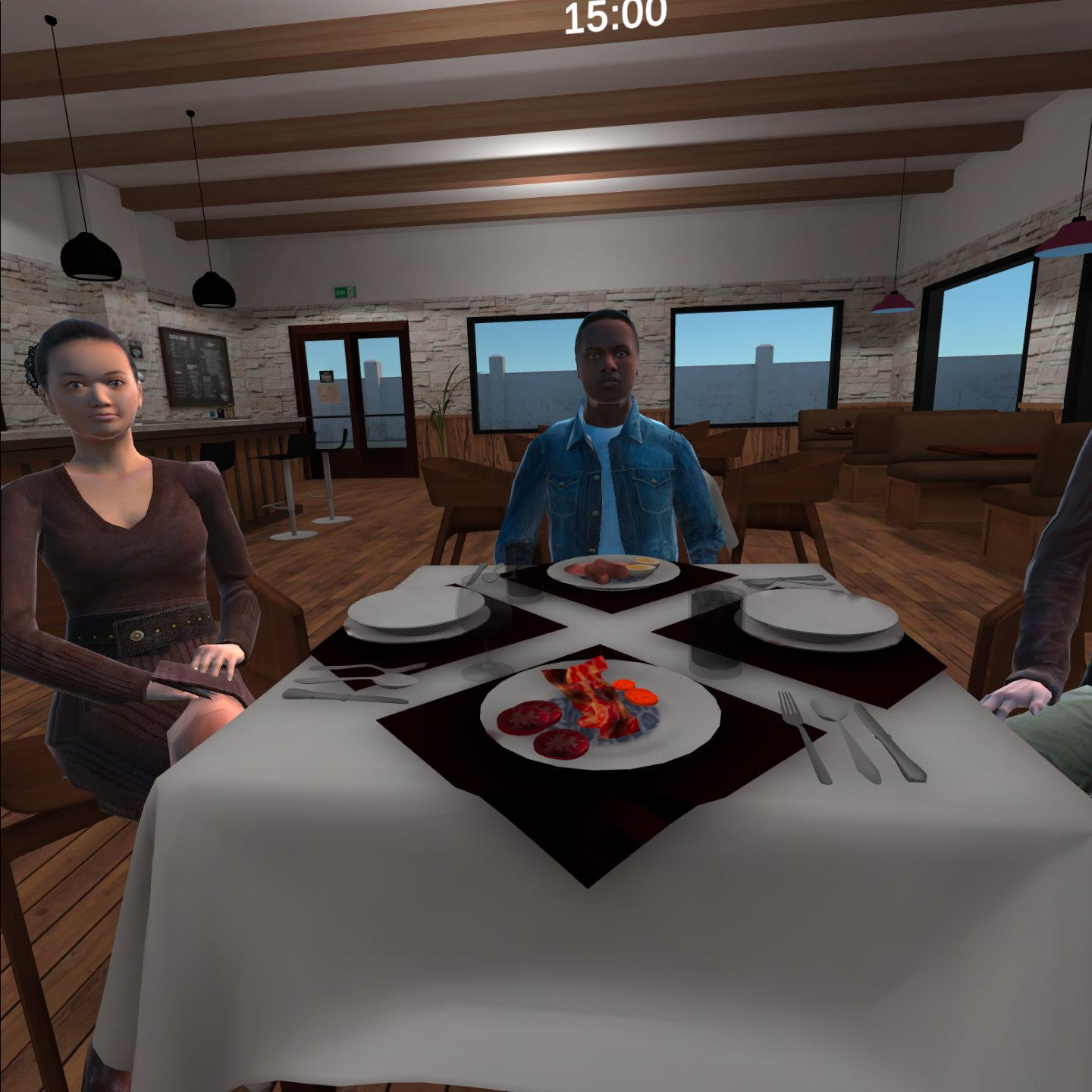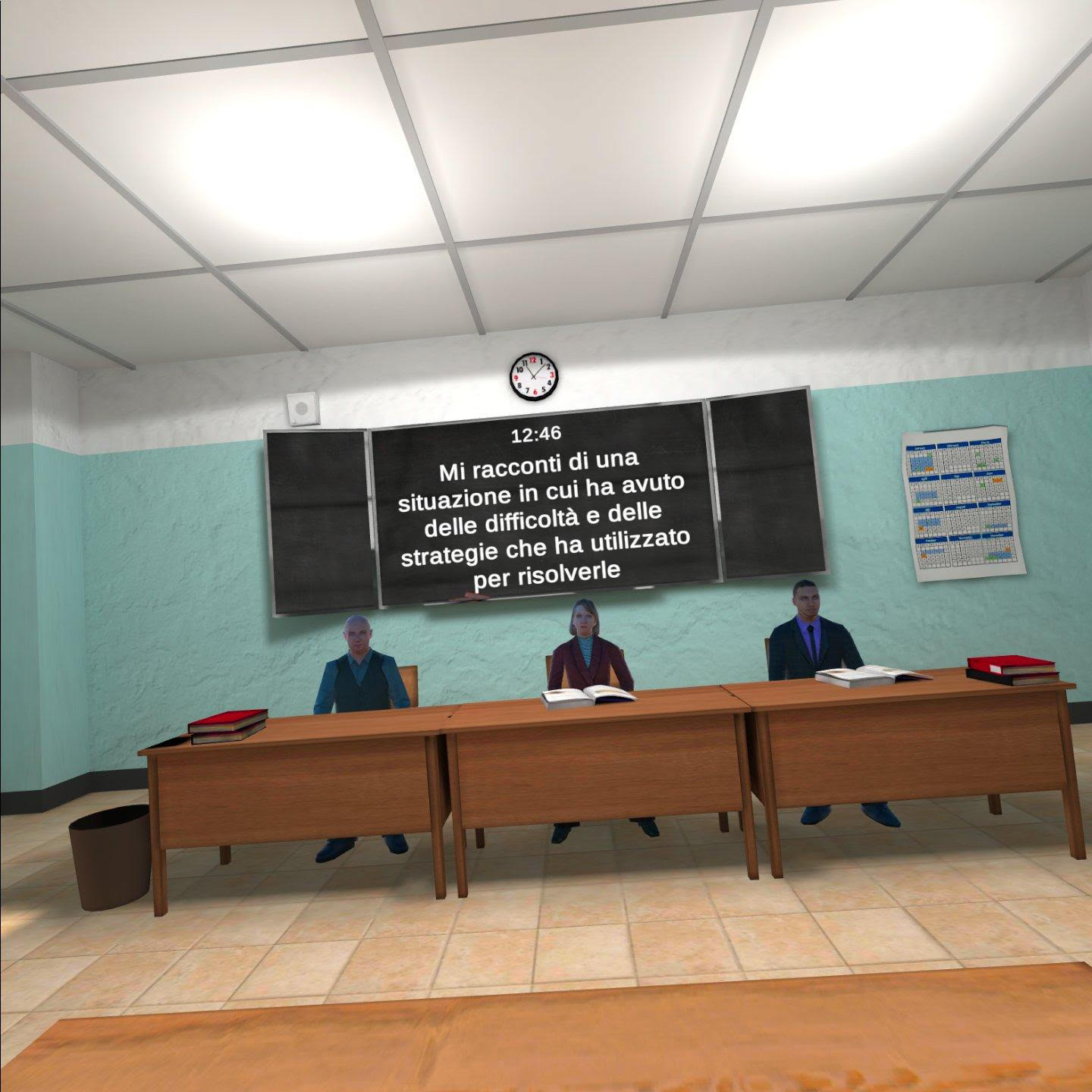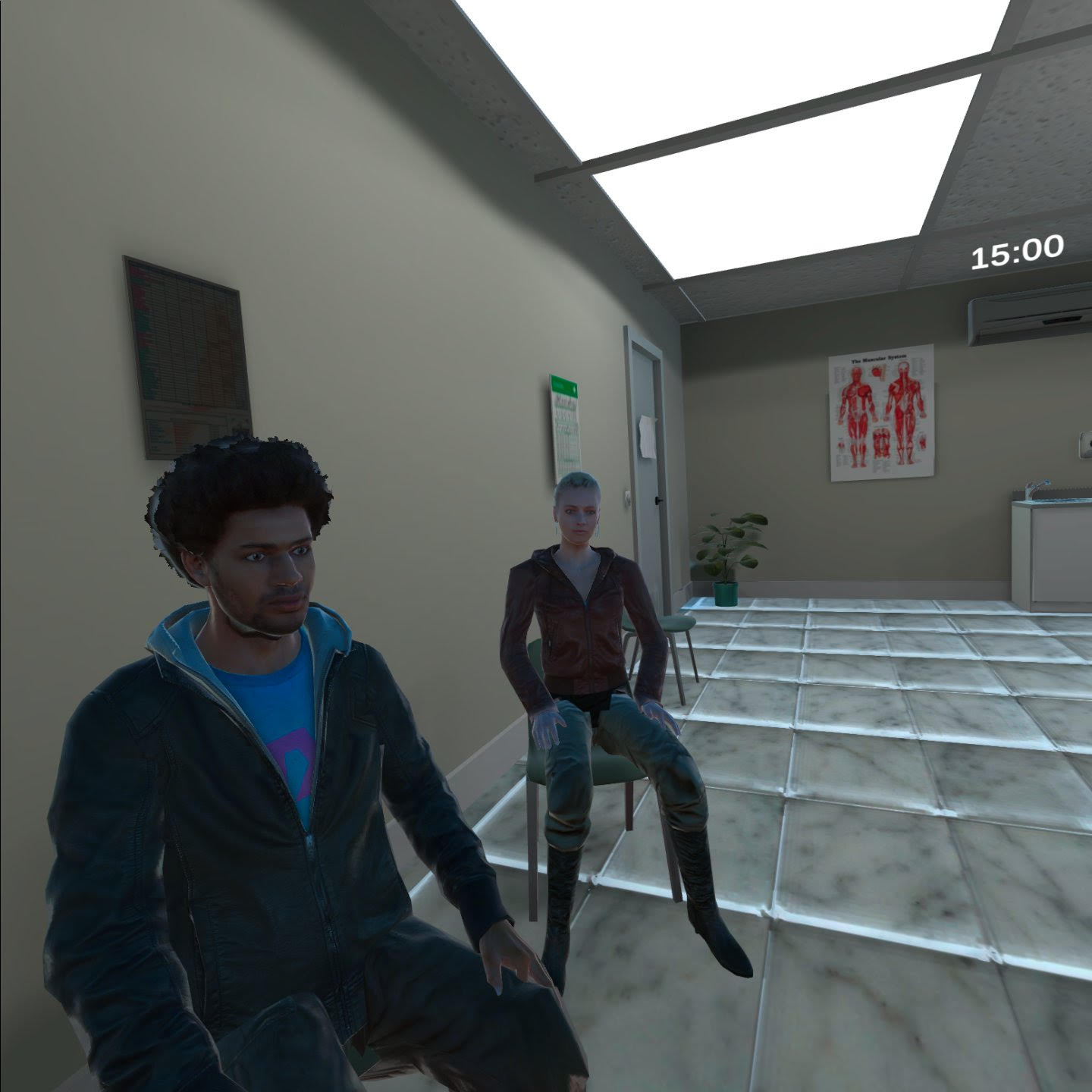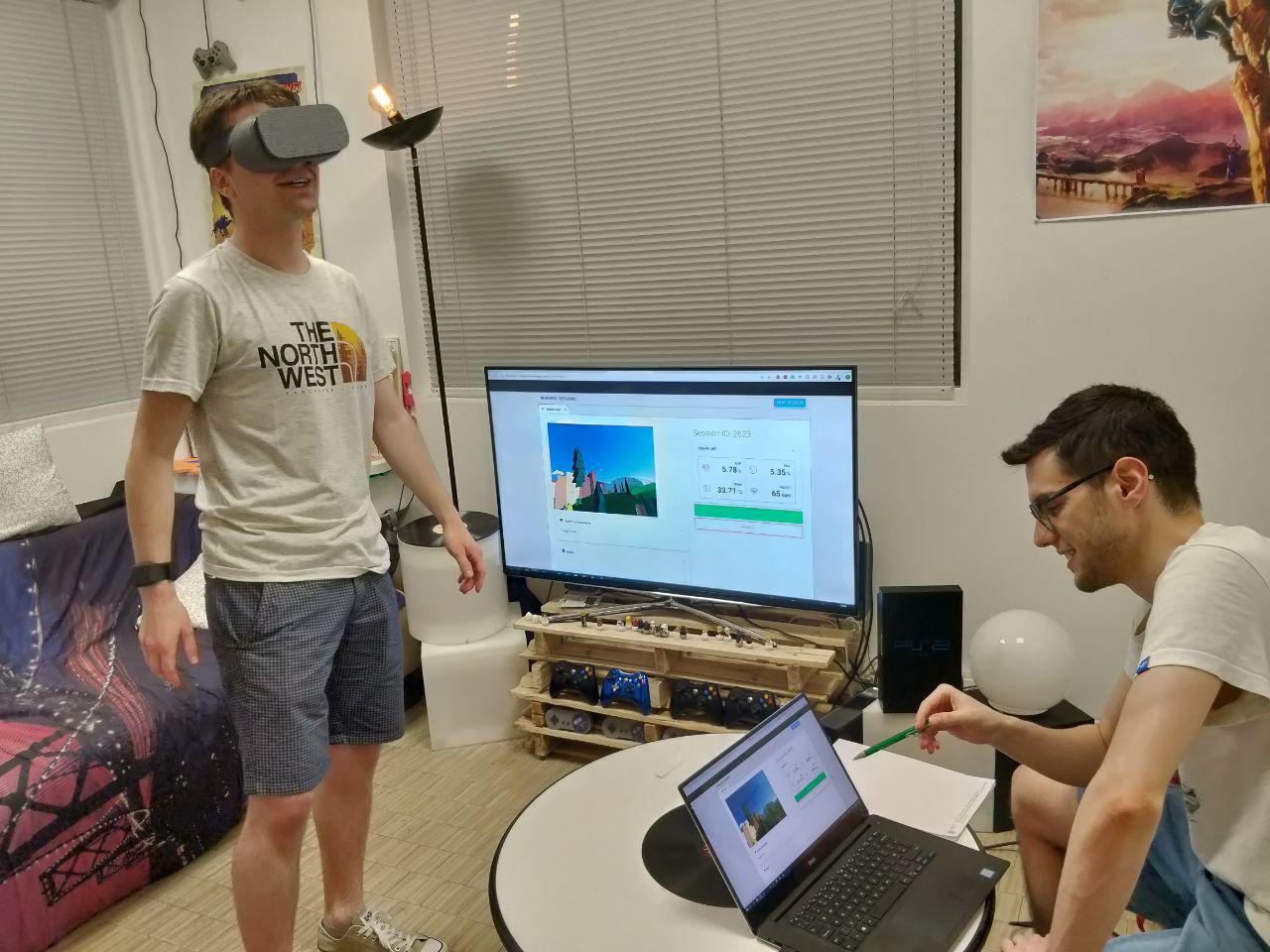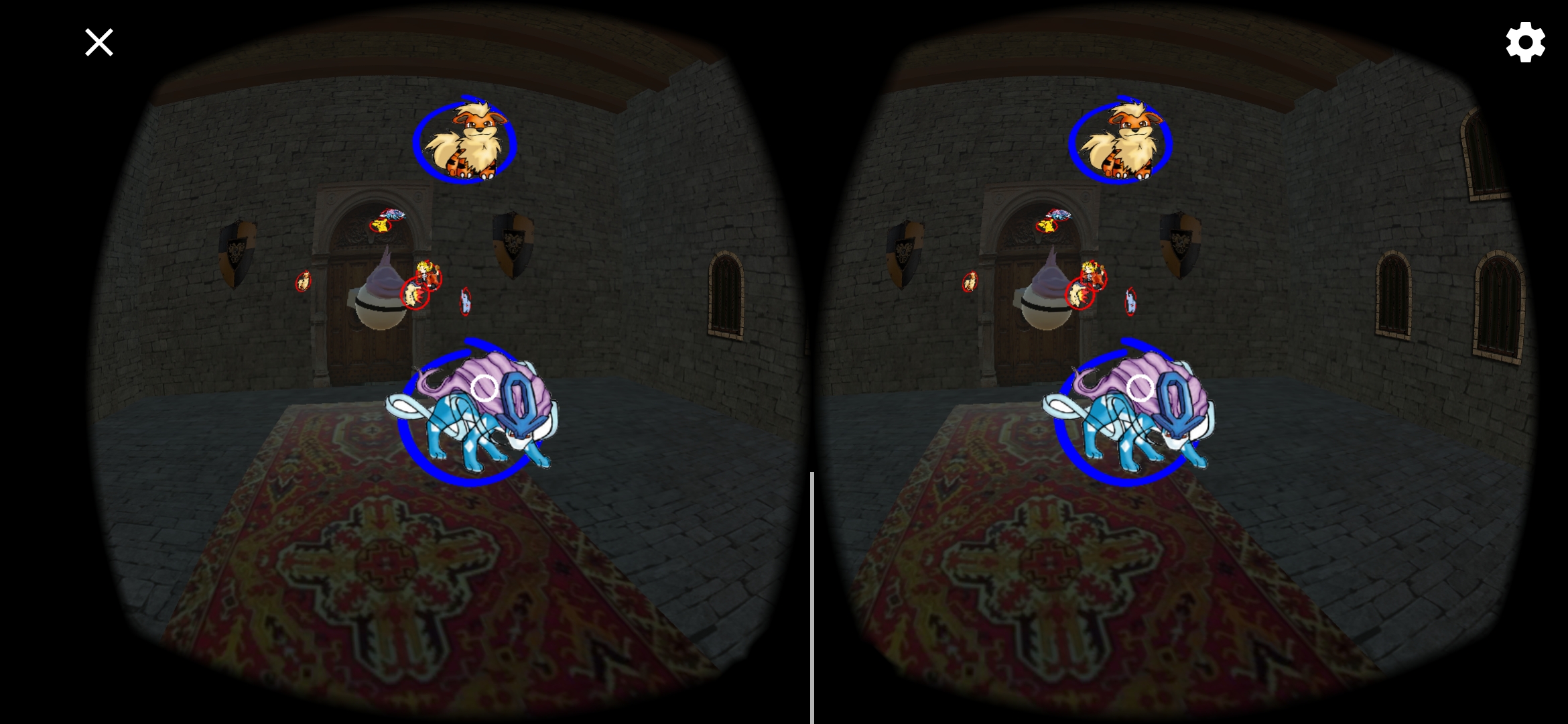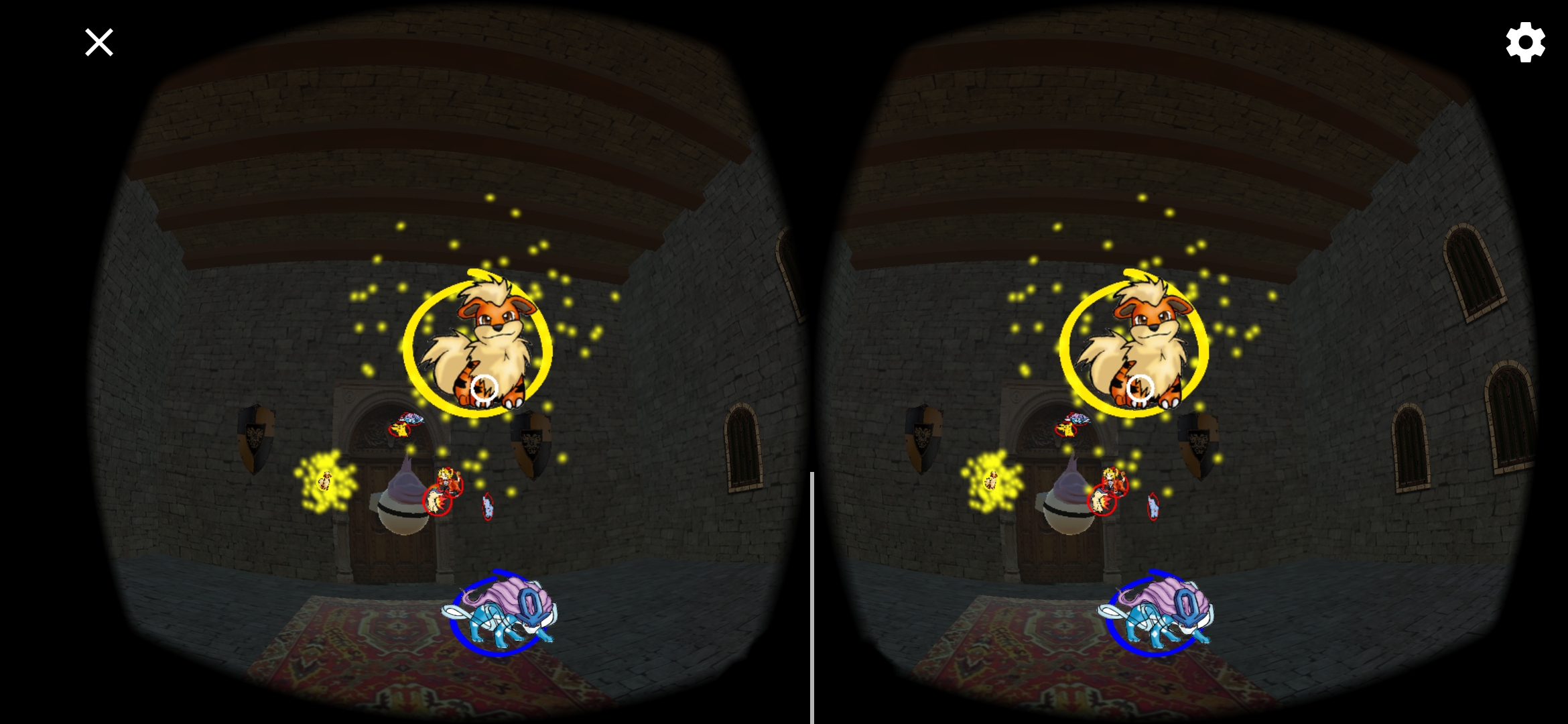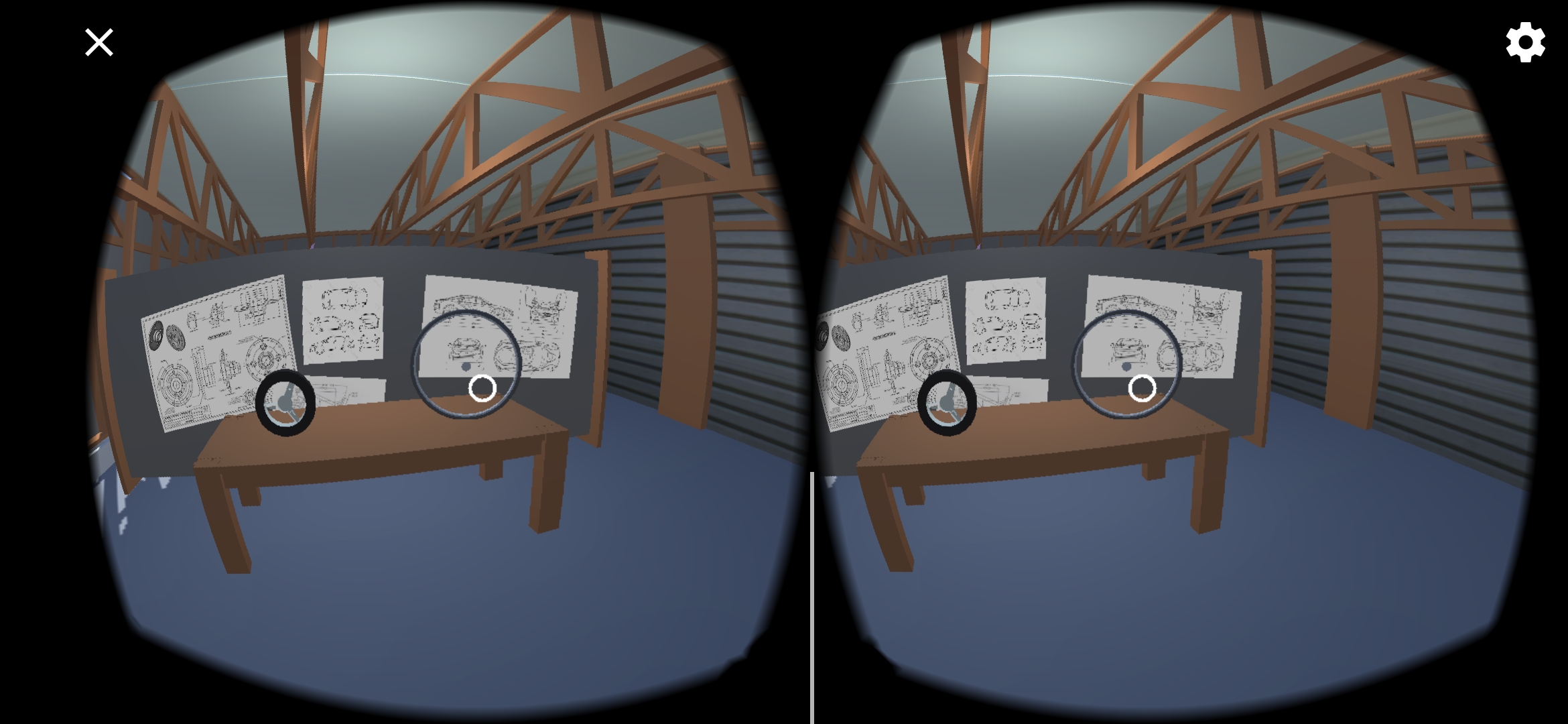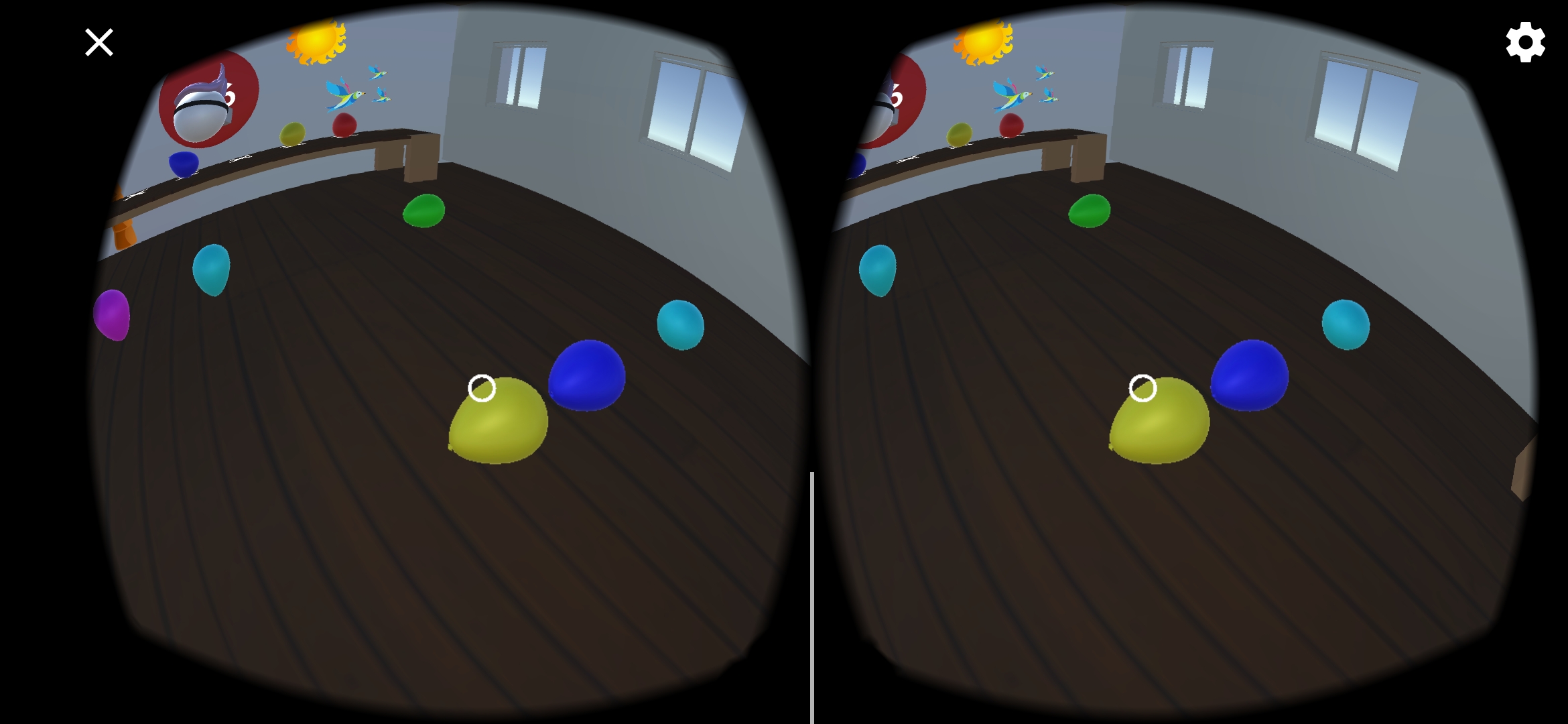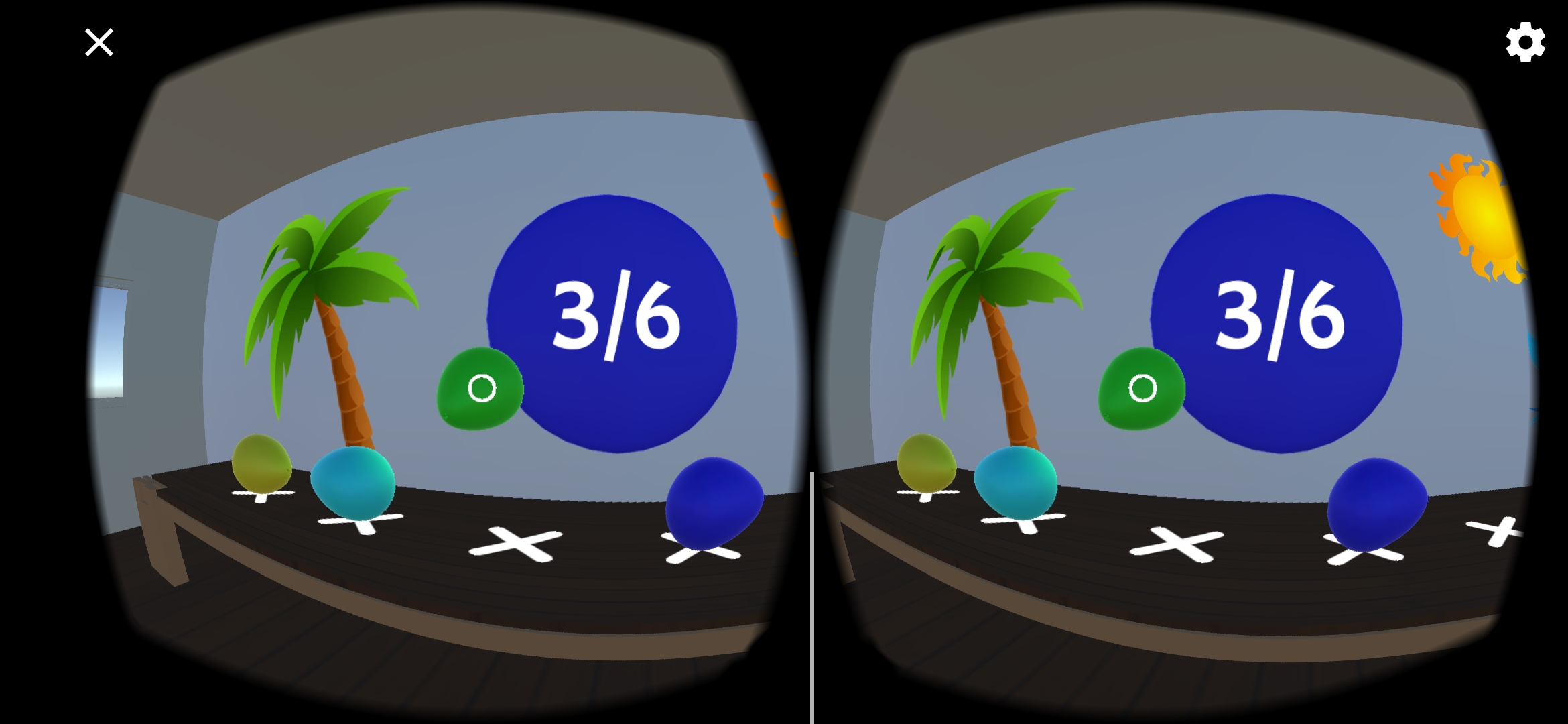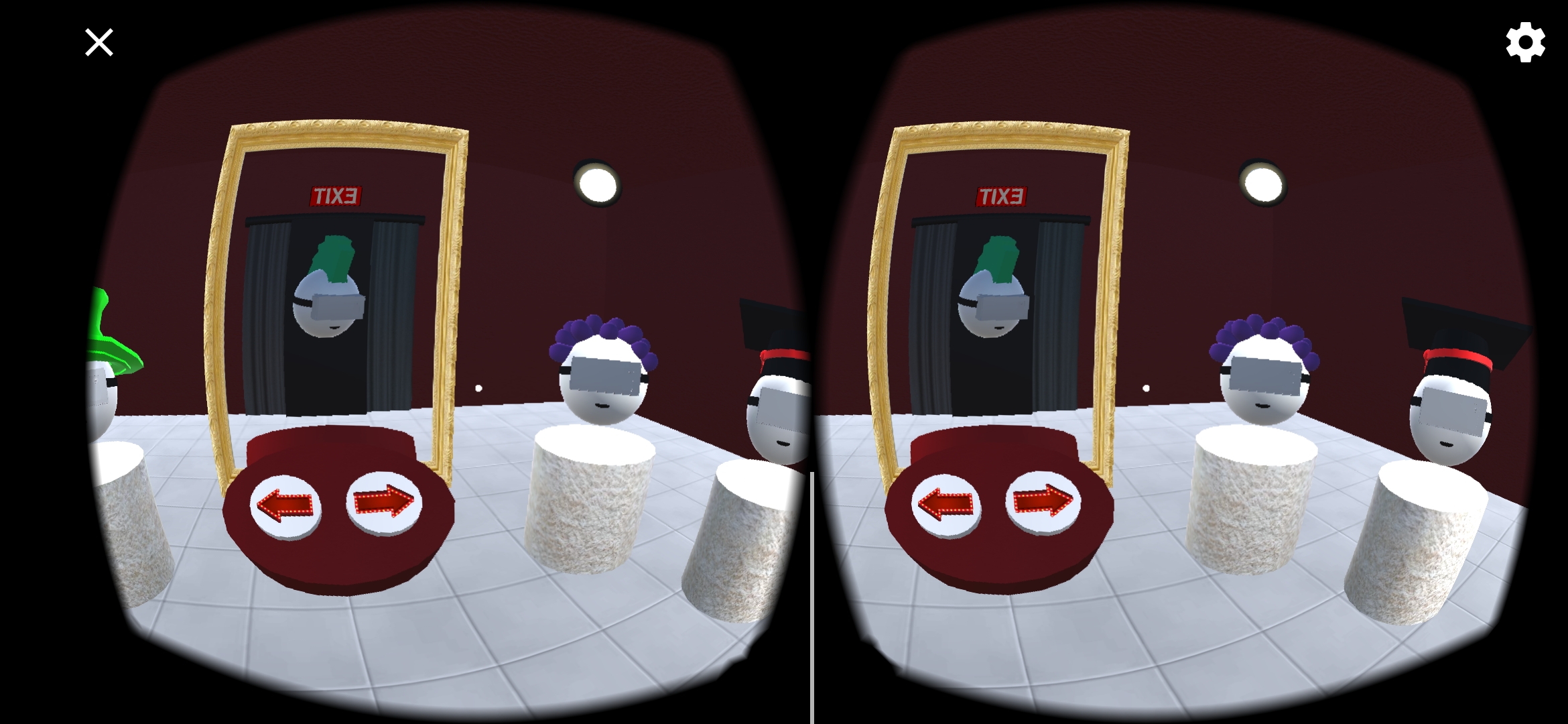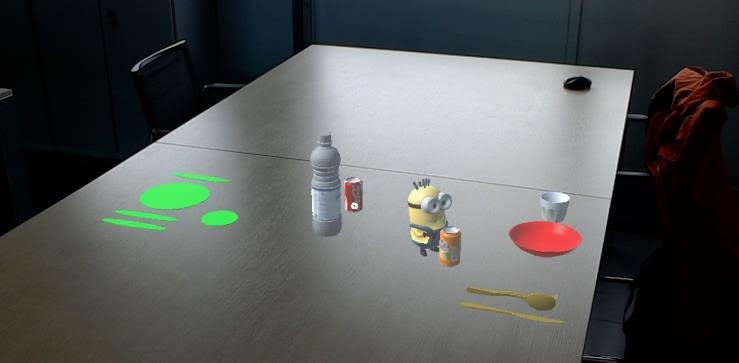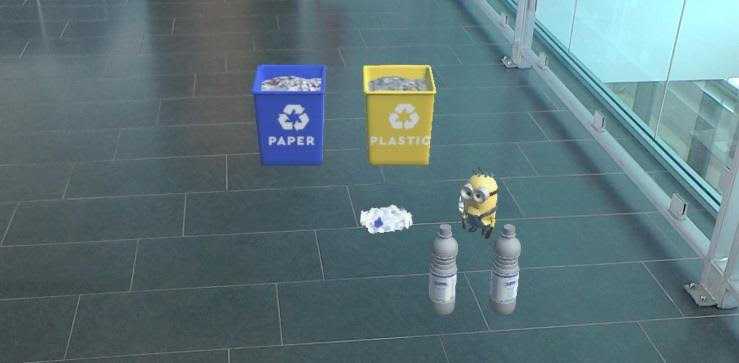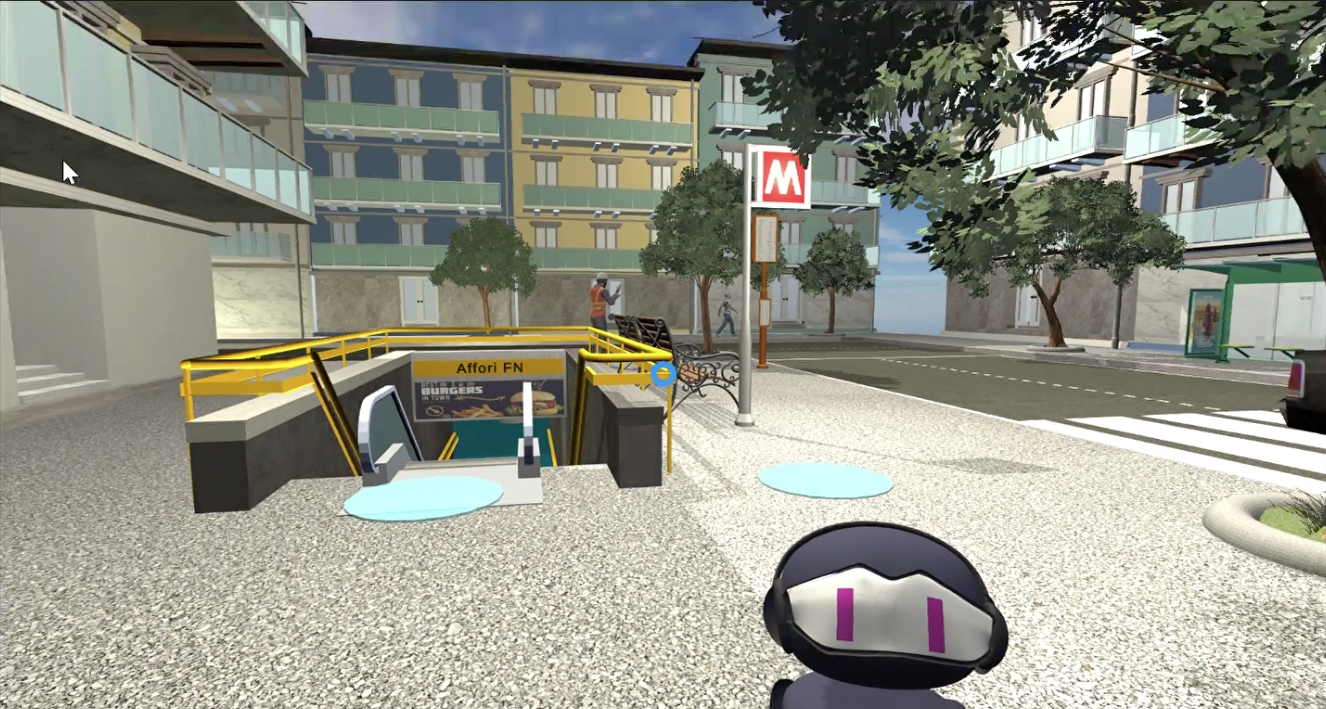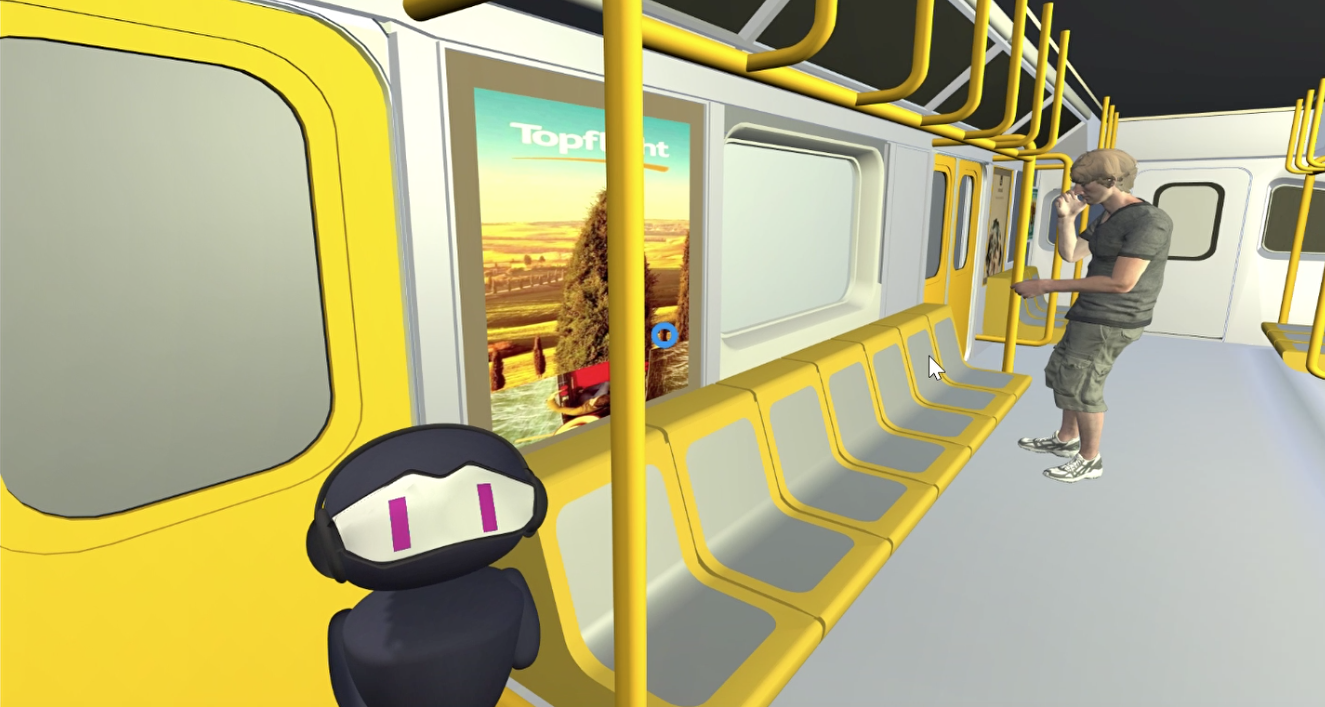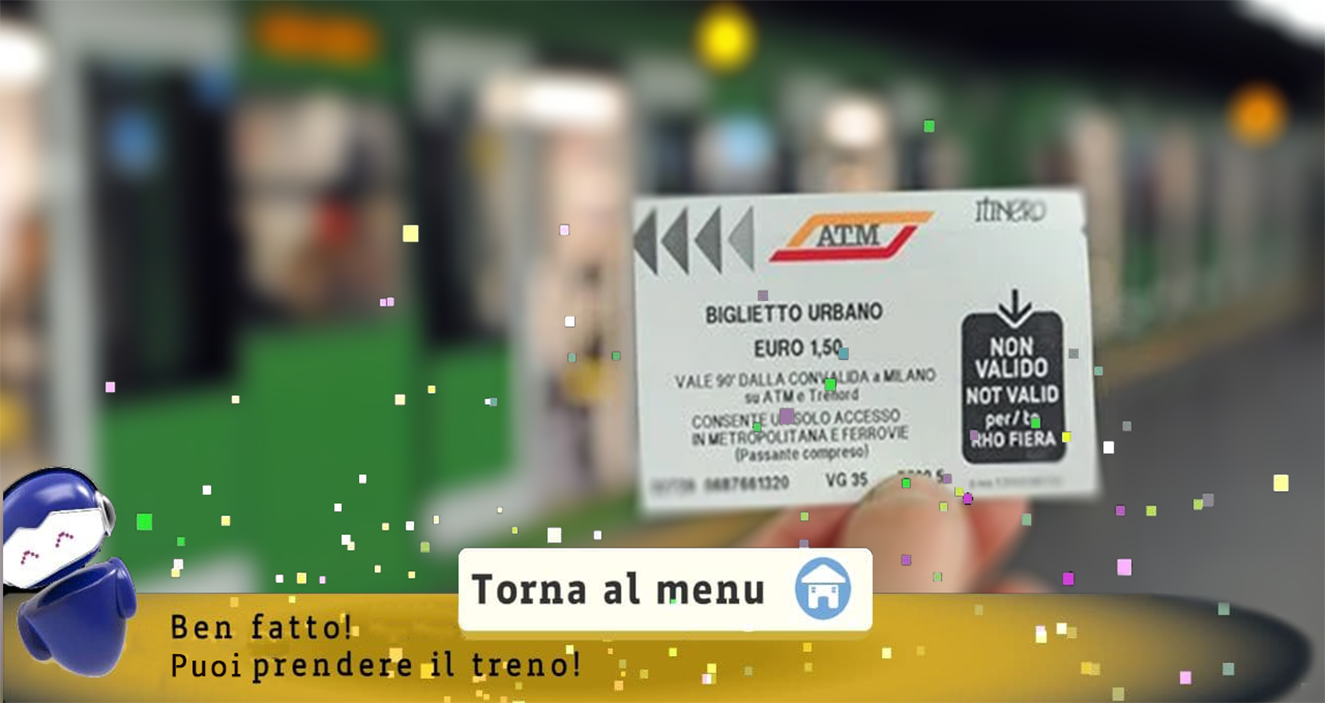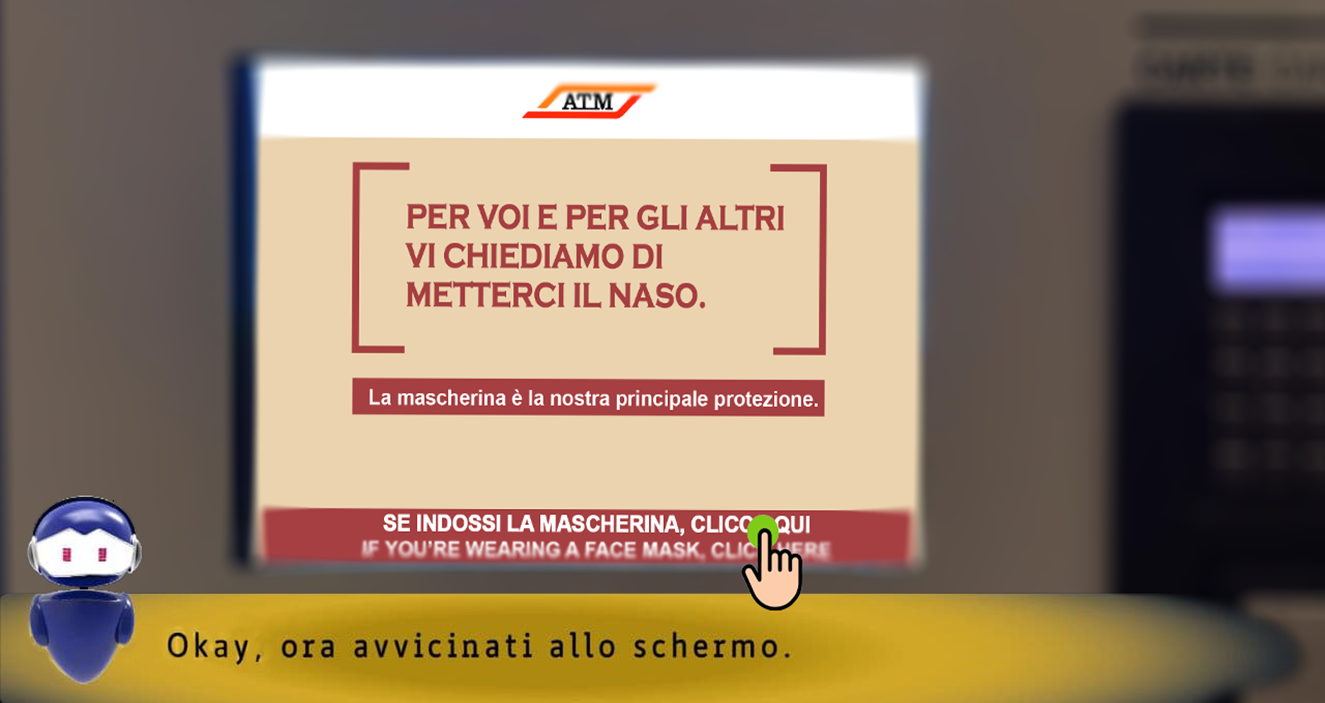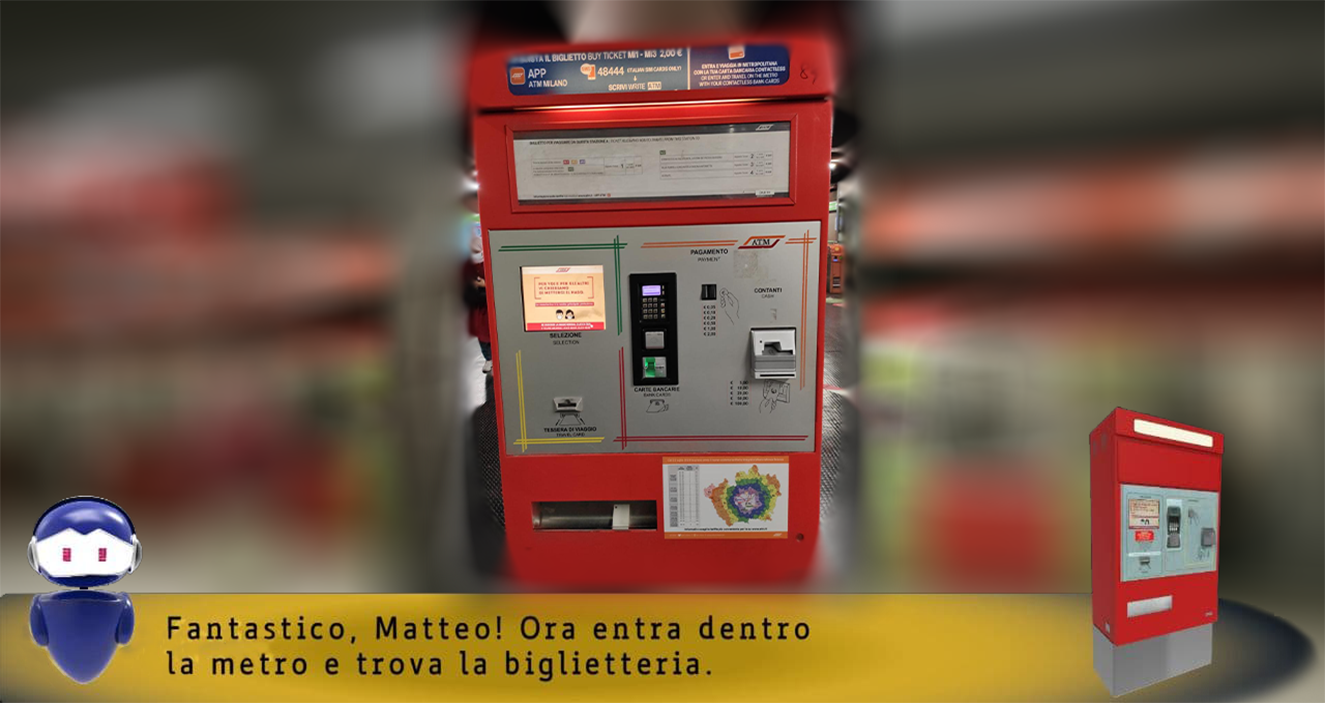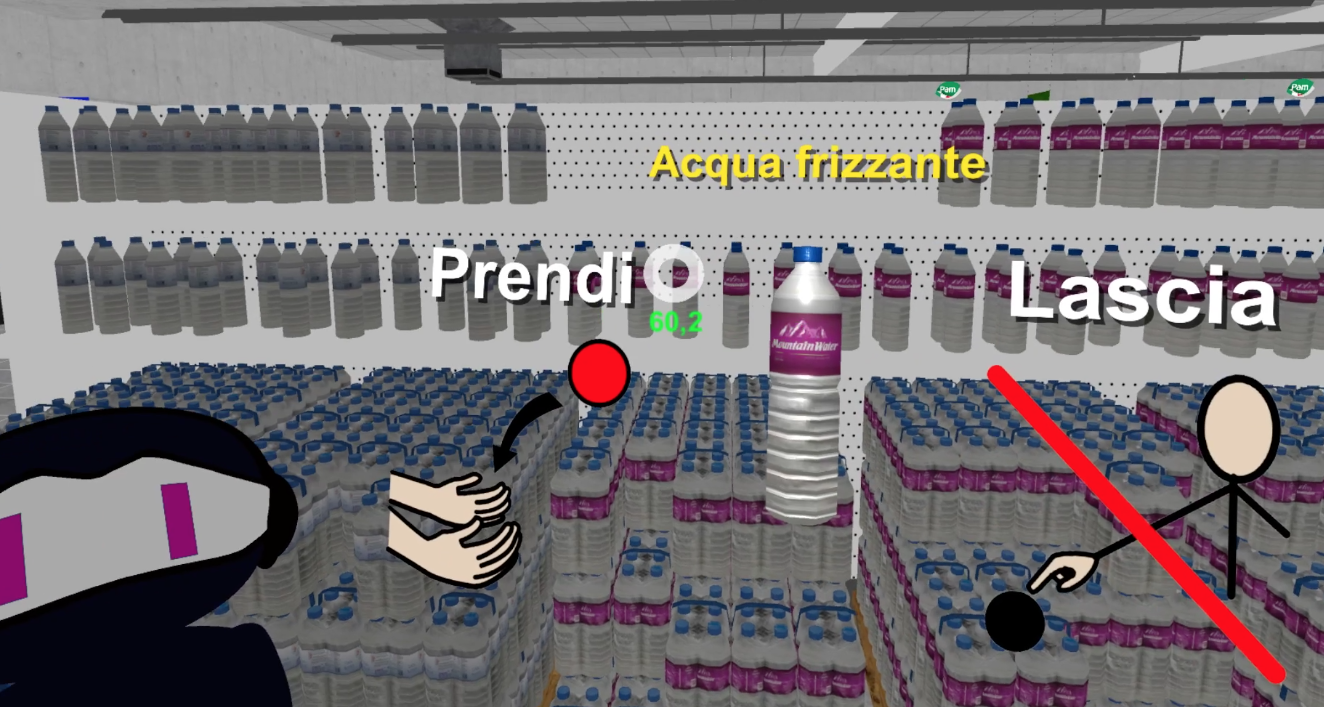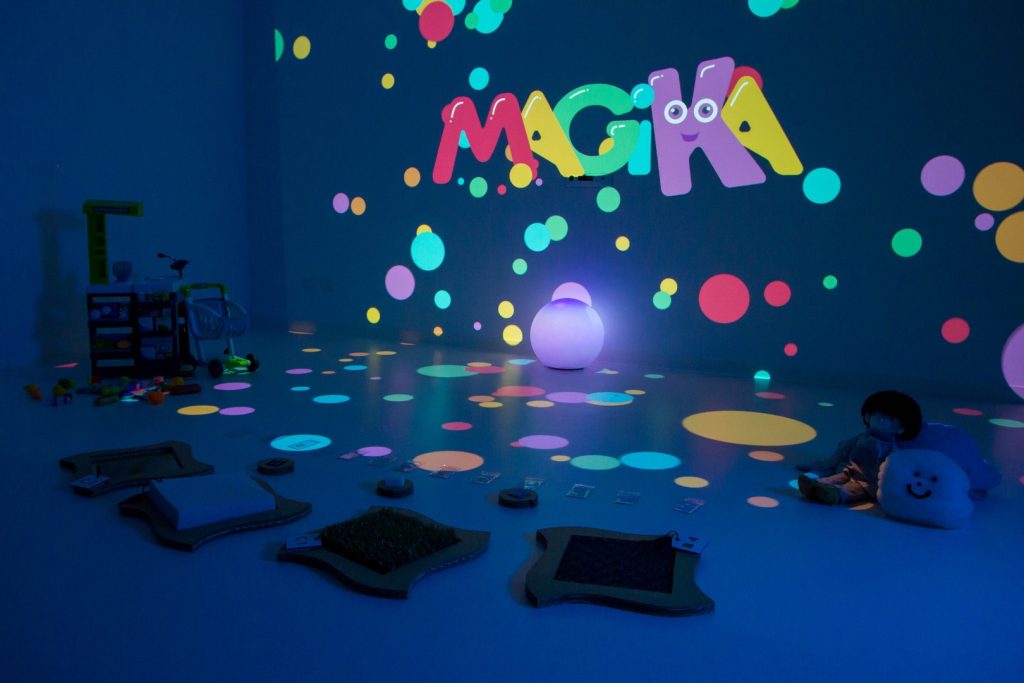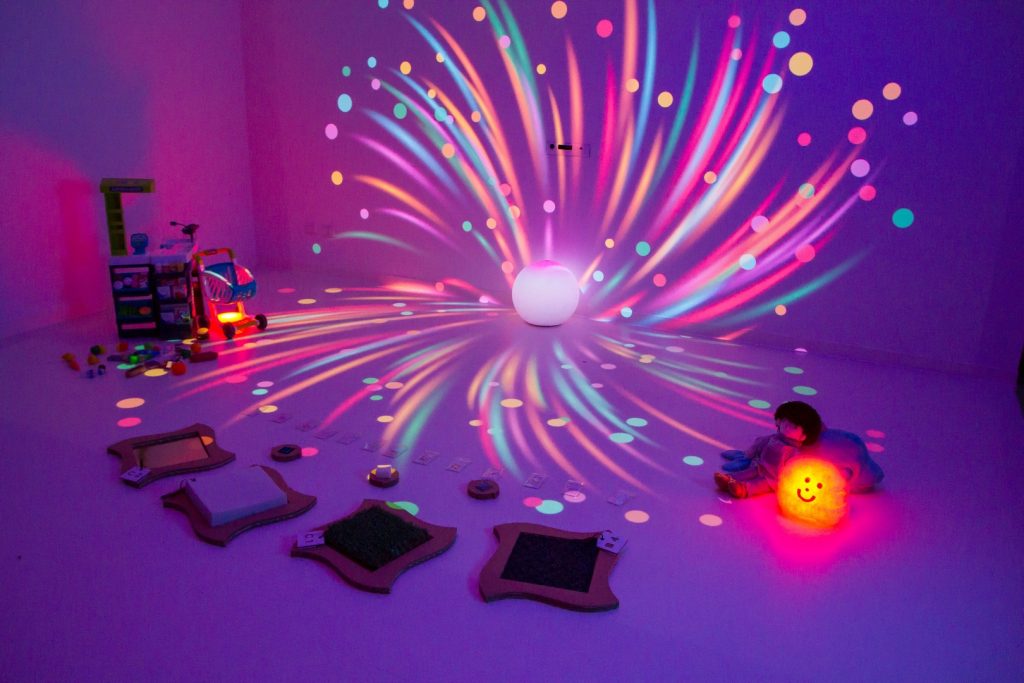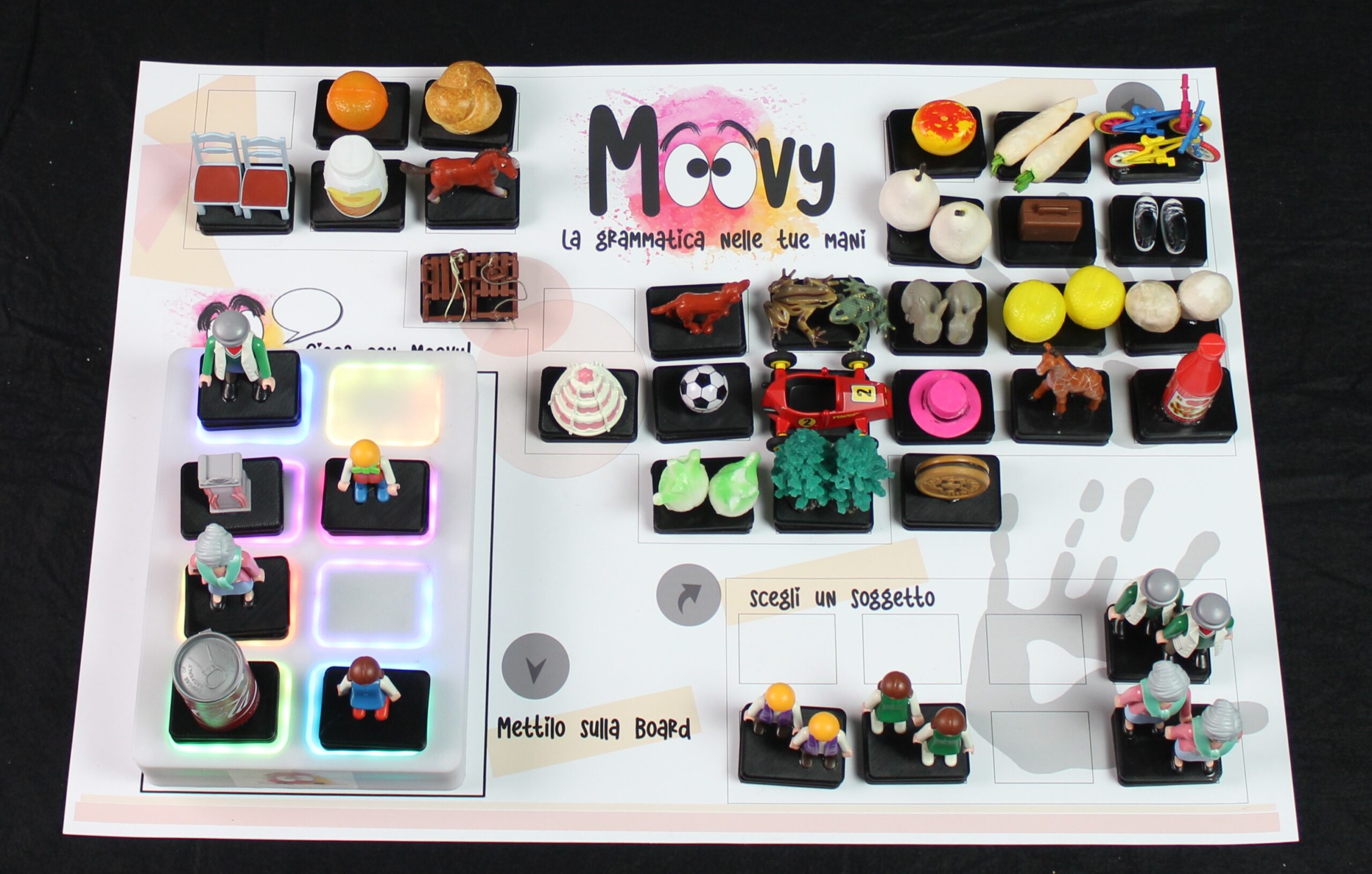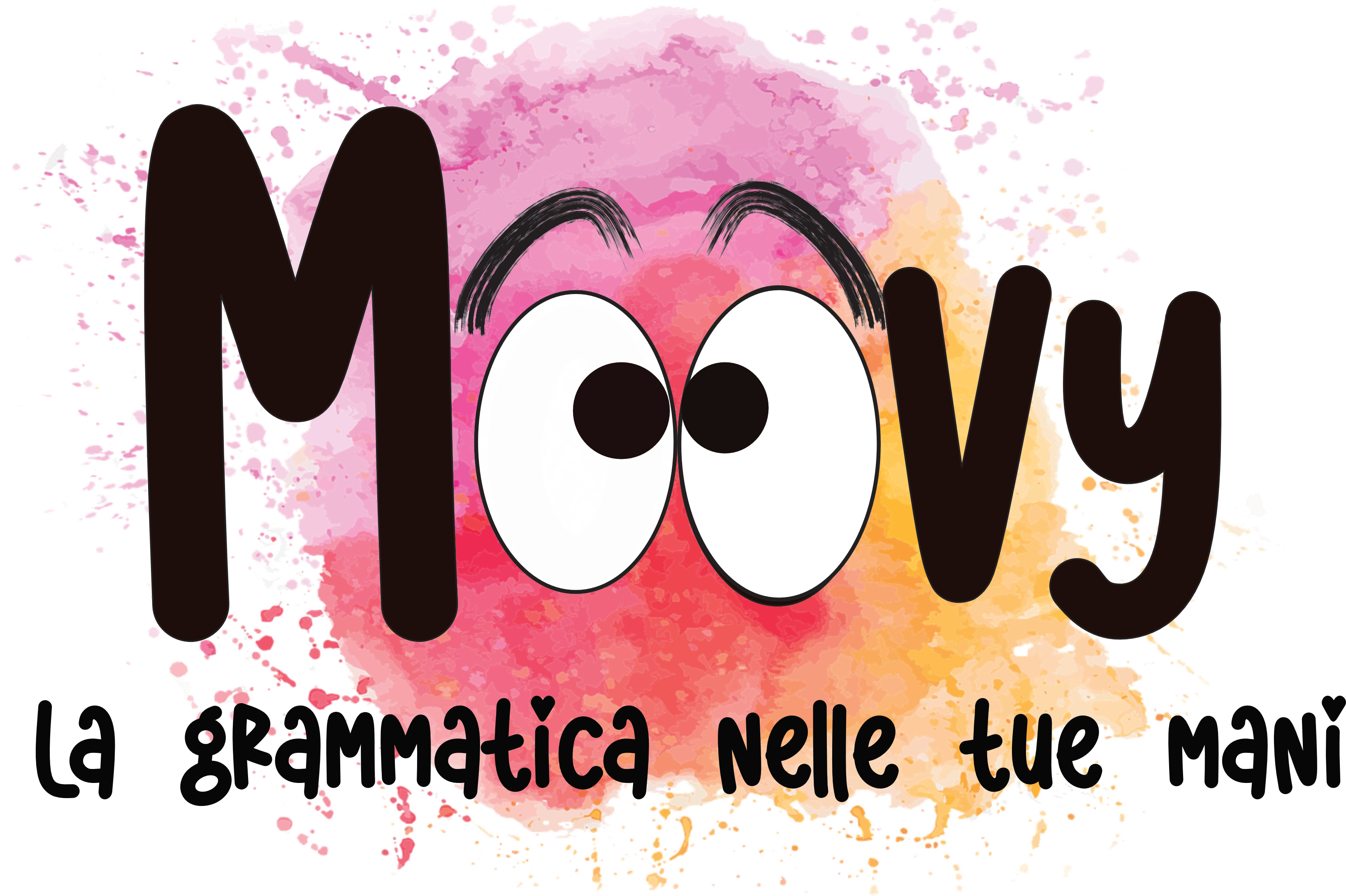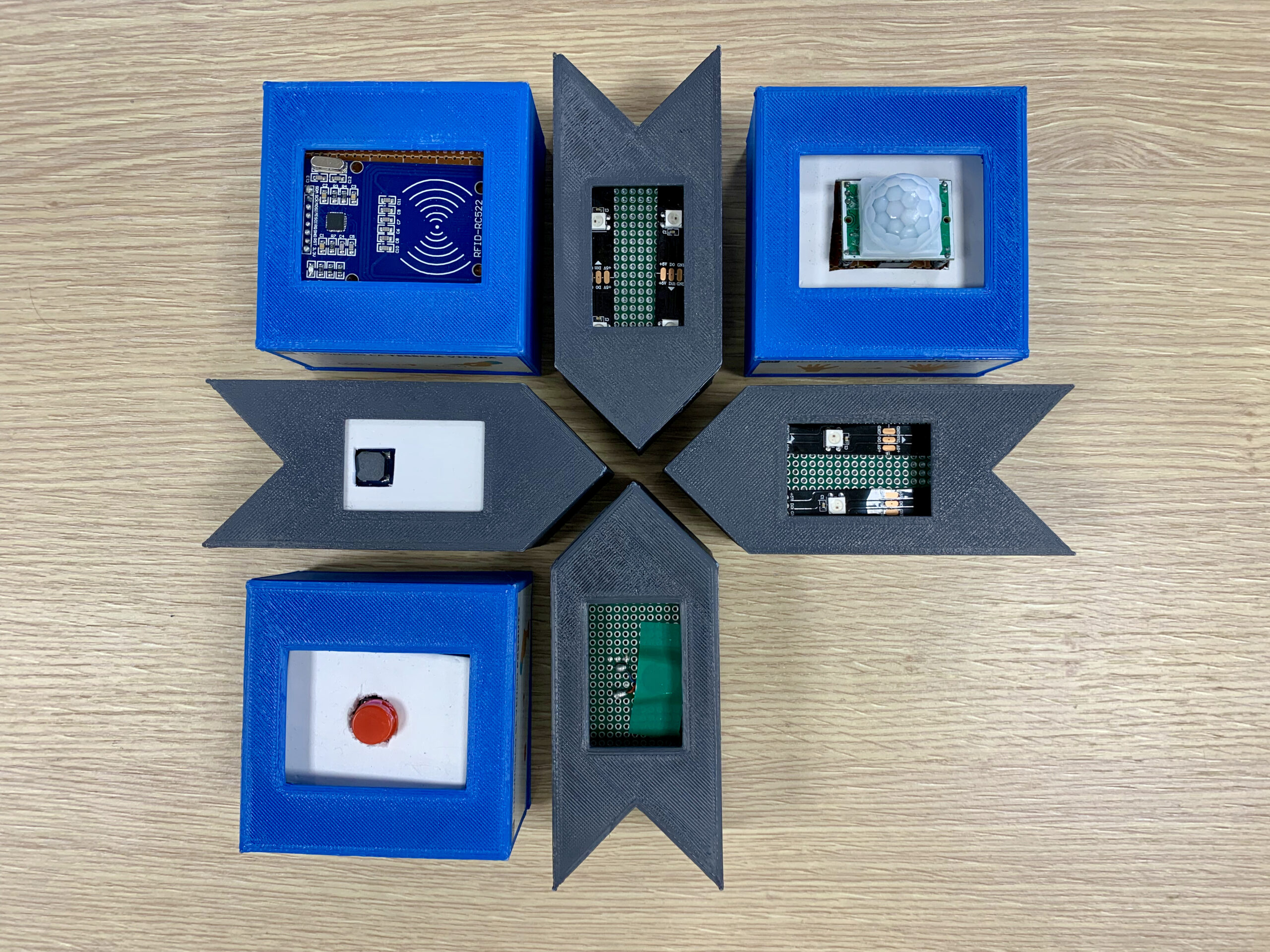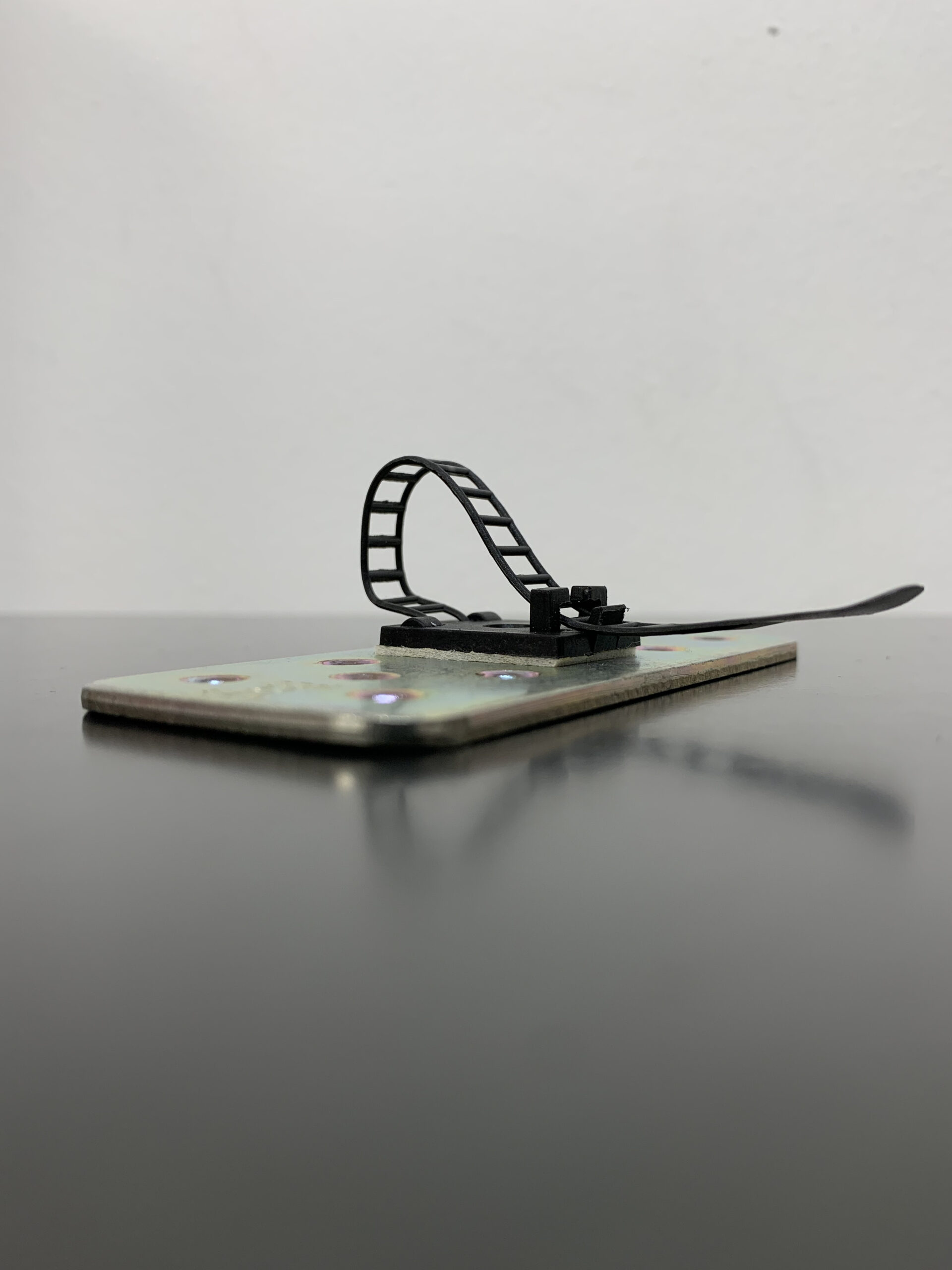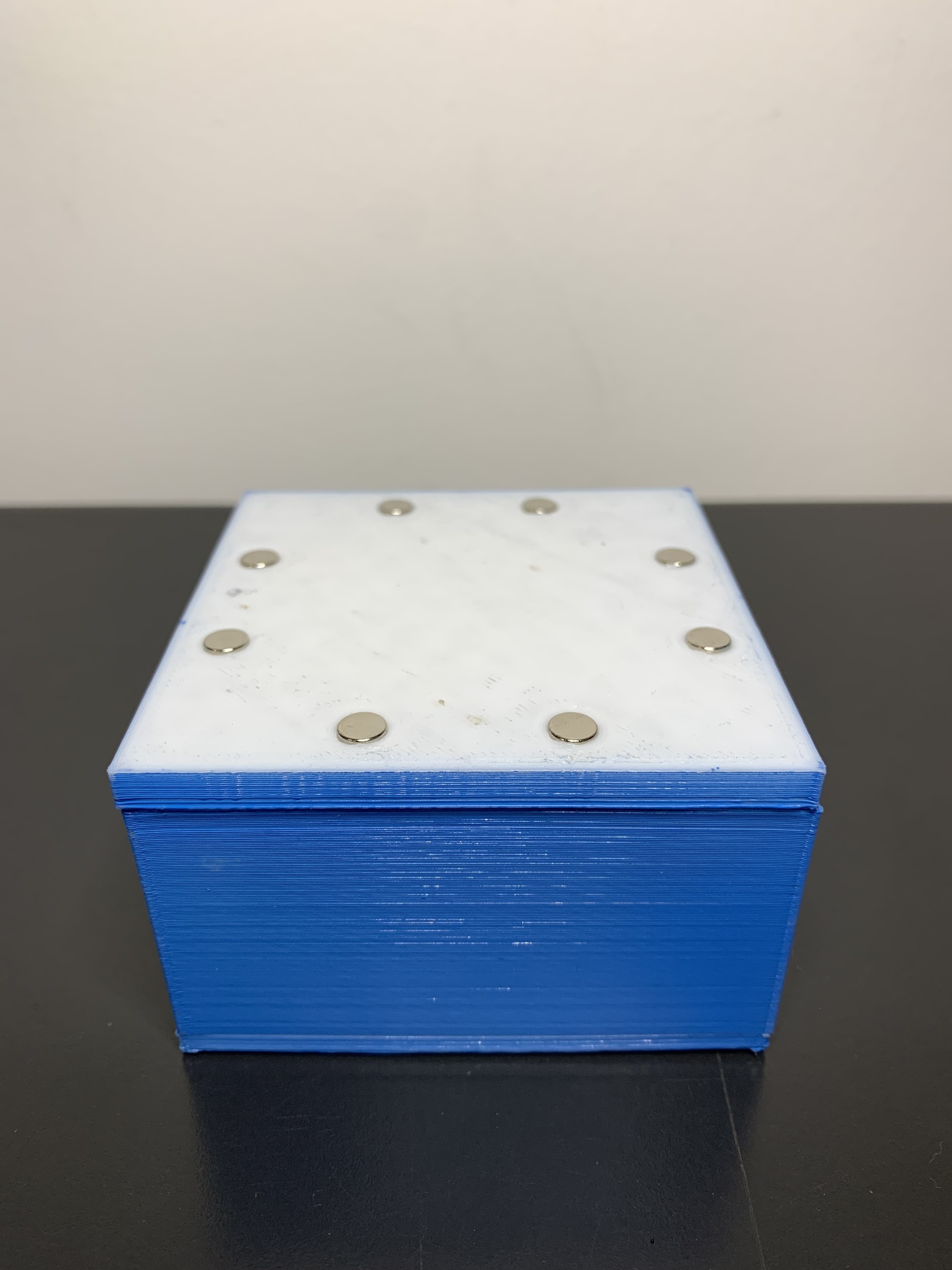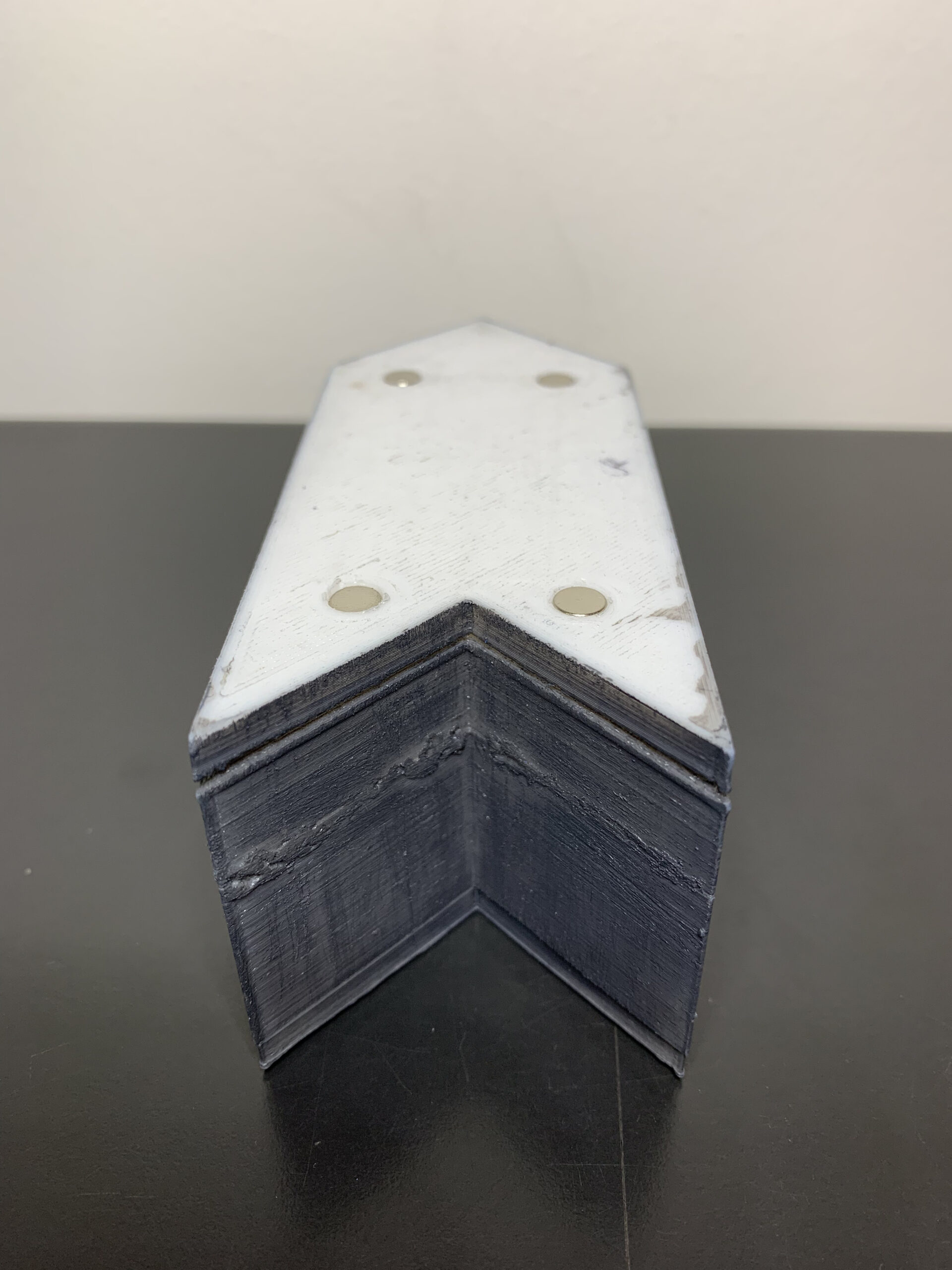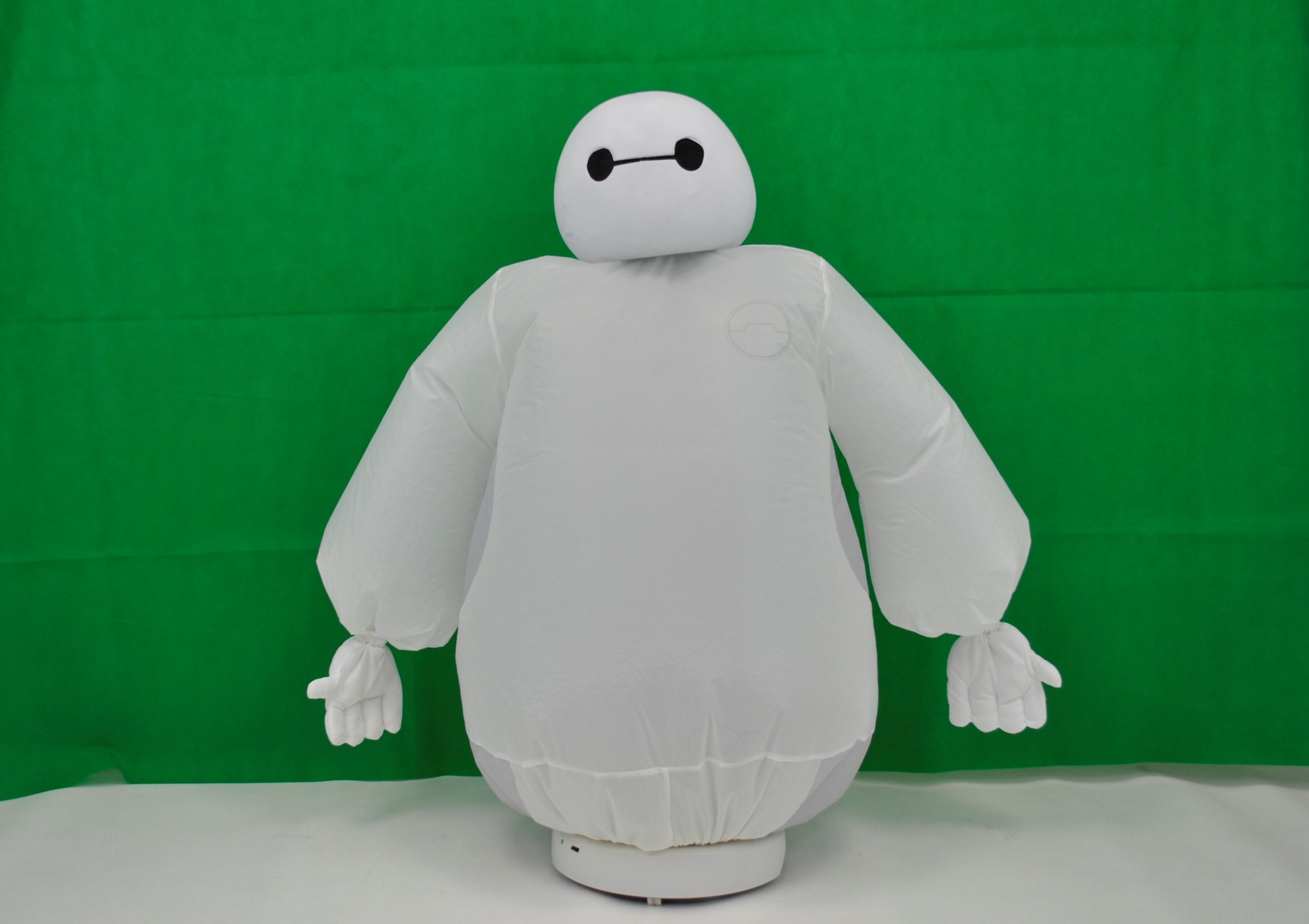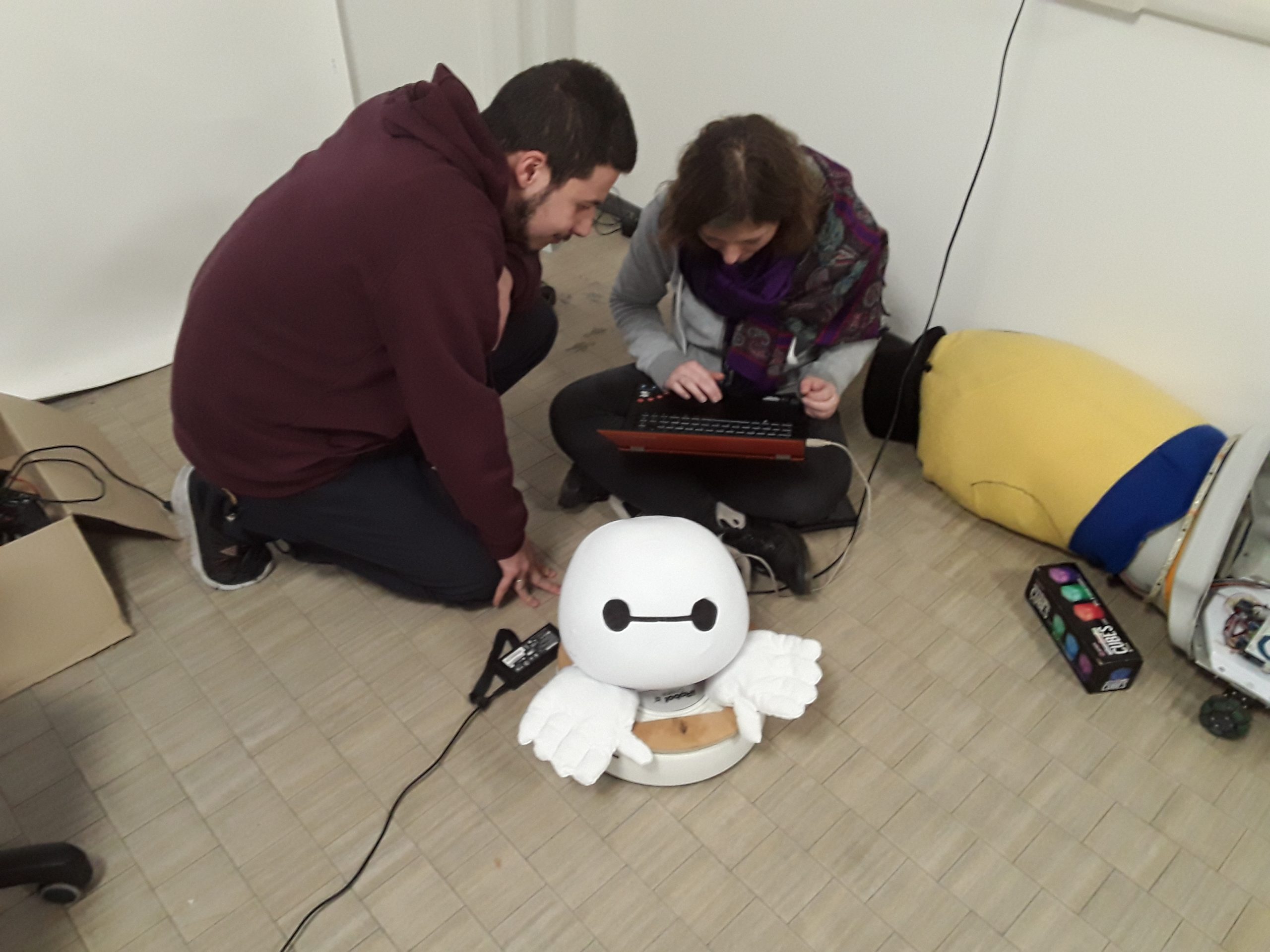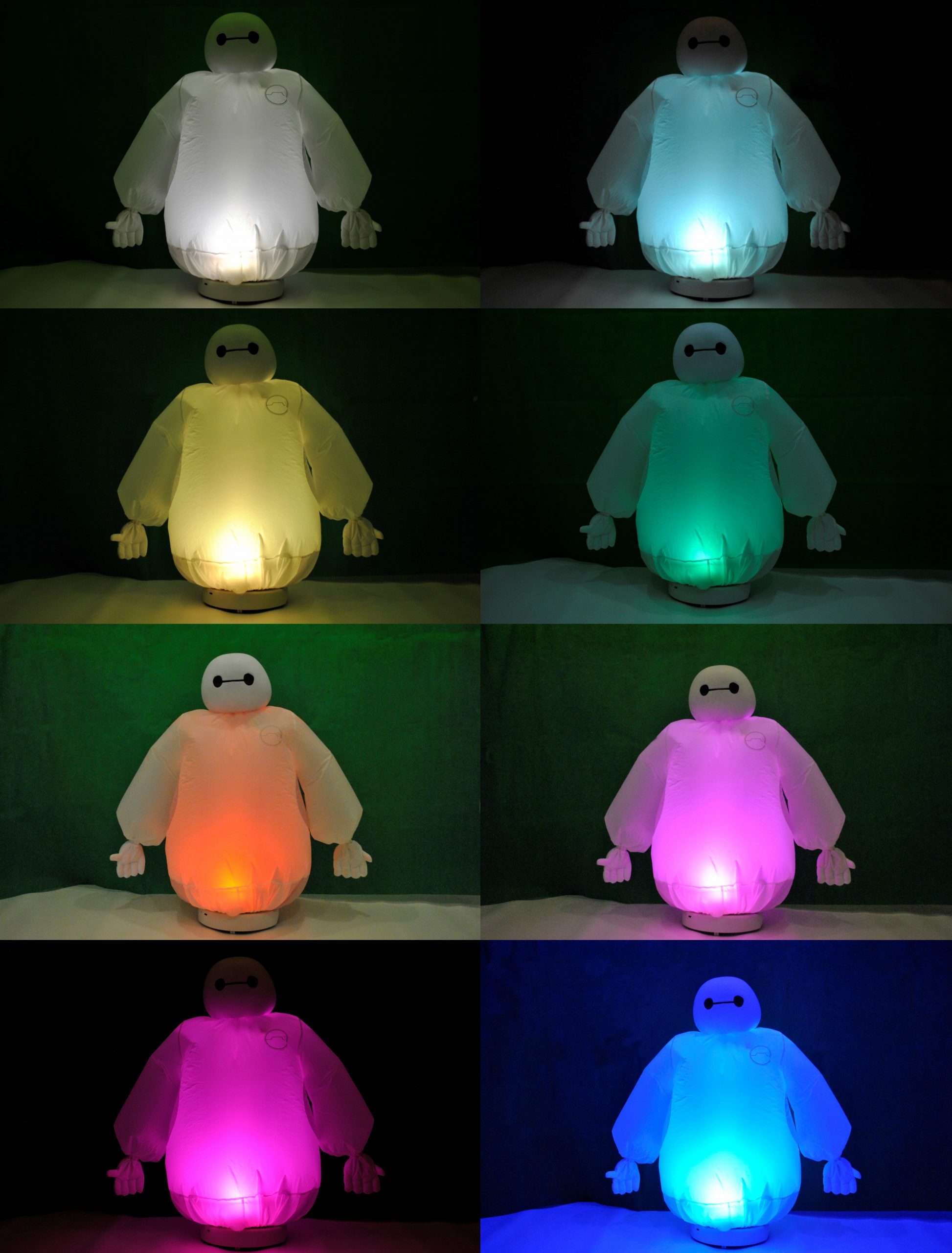Research
Our research is dedicated to exploring and advancing interactive technologies through a multidisciplinary approach. By collaborating with real stakeholders, we drive our research questions and ensure practical relevance.
At I3Lab, we believe that the convergence of these areas holds great promise for the future of interactive technologies. By blending expertise from fields such as software engineering, design, psychology, and more, we tackle complex challenges and push the boundaries of innovation.
Conversational Technology
We delve into the realm of Conversational Agents and Technologies, exploring innovative ways to enhance human-computer interactions through natural language processing and dialogue systems.
Emoty
This research project aims at exploiting the advances in conversational technology to support people with Neurodevelopmental Disorder (NDD). NDD is a group of conditions that are characterized by severe deficits in the cognitive, emotional, and motor areas and produce severe impairments in communication and social functioning.
-> Watch Emoty’s Video
DSBot/GeCoAgent
DSBot is an invaluable assistant that empowers domain experts by providing them with user-friendly tools to apply data analysis methods independently. By understanding research questions through conversational interaction, DSBot generates data science pipelines and produces insightful analyses.
Its strength lies in the design of a rich domain-specific language, neural network translation, and a vast dictionary of pipelines, offering a seamless experience for users.
GeCoAgent complements DSBot as a revolutionary big-data service for clinicians and biologists. It simplifies the complex process of navigating vast genomic repositories, extracting relevant data, and performing comparative analysis. With its chatbot-driven dialogic interface and simplified result representations, GeCoAgent enables healthcare professionals to delve into genomics research effortlessly. Together, DSBot and GeCoAgent transform the landscape of data analysis and genomics research, making advanced technologies accessible to a wider audience.
Mars
Mars is an inclusive and Universal Tool for Children with Language Disorders and Autism. Communication can be defined as the understanding and exchanging of meaningful messages, and its role is central to the lives of human beings as, everyday, we use language to interact with the world around us.
Linguistic skills play a fundamental role in this scenario and Language Disorders (LD) are impairments that limit the processing of linguistic information. Early and accurate identification of LD is thus essential to promote lifelong learning and well-being. The MARS project offers a concrete solution to this problem by creating a speech data gathering tool for language-independent identification of developmental language disorders. MARS analyzes the babbling productions of children in typical and atypical populations through a playful activity. The focus of the project is to analyze the audio’s temporal and spectral features reflecting an individual’s prosodic, articulatory, and linguistic vocal characteristics and recurrent patterns corresponding to specific anticipatiory skills. Mars can become an invaluable tool for providing children in need with precious support.
-> Visit Mars’ Website
Legalbot
Legalbot is an innovative project born out of a collaborative effort between Politecnico di Milano and Tribunale di Milano. Its mission is to enhance accessibility to vital legal information for the end-users. By leveraging the capabilities of a sophisticated chatbot, it provides a seamless and user-friendly UI for individuals seeking common legal information.
Through natural language interactions, users can easily obtain details on legal procedures, relevant laws, and logistical information about the Tribunale, such as operating schedules and specific office responsibilities. Legalbot dynamically retrieves and presents the required information, simplifying the complexities of the legal system and empowering individuals to make informed decisions tailored to their unique needs.
Chatbot 4 Sustainability
We aim at addressing the urgent challenge of climate change through innovative technology and human-computer interaction. We focus on developing Persuasive Conversational Agents (PCAs) that inspire individuals to adopt more sustainable behaviors. By integrating IoT capabilities of home automation environments, we can provide personalized feedback and promote green habits, contributing to a more environmentally conscious society.
Extended Reality
Our team pioneers research in the exciting domains of Augmented Reality (AR) and Virtual Reality (VR). We strive to unlock the full potential of immersive technologies, developing new applications that span industries such as healthcare, education, and people assistance.
Speak in Public
Ludomi is the project awarded by Polisocial Awards 2017 in which we developed Magika, the innovative technological solution that allows to transform any room into a “smart” space in which lights, immersive projections on walls and floors, music, sounds, aromas, and physical materials are digitally controllable, programmable, and interactive.
TWB
TWB is a EIT-funded project that addresses the therapeutic needs of persons with neuro-functional impairments (NFI), e.g. attention deficits or mental decline. We offer innovative services bridging wearable VR and MR apps & bio-sensing devices integrated in a customizable platform for patient care, therapy management and data analysis.
TWB services would enable novel treatments for adults with NFI to mitigate mental decline and for children with NFI to develop cognitive-behavioral skills, improving life quality for these subjects and reducing social costs.
-> Watch TWB’s Video
Social MatchUp
Social MatchUp is a multiplayer Virtual Reality mobile game for children with NDD. Shared virtual reality environments (also knowsn as SVREs) allow NDD children to interact in the same virtual environment, but without the possible inconvenience caused by having a real person in front of them.
The application has been designed in collaboration with psychologist and it’s the result of a partecipatory design process with people with NDD. The goal of the game is to enhance social and communication skills through a platform in which, in pairs, players will have to join the same images by staring at them; in order to agree on the image to look at they only have a way to communicate: by speaking
Hololearn
HoloLearn is a Mixed Reality (MR) application developed to help individuals with Neurodevelopmental Disorders (NDD) practice everyday tasks. Created with the guidance of therapists from “Fraternità e Amicizia” in Milan, the application aims to foster independence by simulating real-life activities in virtual environments. Users engage in activities such as laying the table and garbage collection, where they place virtual objects in correct positions or sort virtual trash into designated bins, respectively.
A key feature of HoloLearn is its customization options, allowing therapists to adjust task complexity and choose different objects for the activities. An animated virtual assistant, inspired by a Minion character, provides guidance and encouragement, making the learning process engaging and tailored to the user’s needs.
5A
The 5A project involves the use of interactive applications and innovative tools based on smartphones and wearable visors that integrate Immersive Virtual Reality (ICR), Augmented Reality (AR) and Conversational Agents (CA).
The aim of the project is to empower people with Autism Spectrum Disorders.
In this way, it is possible to promote their social inclusion and improve their quality of life.
The 5A applications, integrating different scenarios, help people with ASD to understand the environmental and socio-organizational characteristics of daily living environments, and perform related activities correctly.
-> Visit 5A’s Website
Smart Objects & Spaces
In a world increasingly connected by the Internet of Things (IoT), we focus on exploring the potential of smart objects and smart spaces. By combining intelligent systems, sensor technologies, and data analytics, we aim to create environments that adapt to users’ needs, providing seamless and personalized experiences.
Ludomi is the project awarded by Polisocial Awards 2017 in which we developed Magika, the innovative technological solution that allows to transform any room into a “smart” space in which lights, immersive projections on walls and floors, music, sounds, aromas, and physical materials are digitally controllable, programmable, and interactive.
-> Visit Ludomi’s Website
Active3
ActivE³ “Everyone, Everywhere, Everyday” is an inspiring project, supported by Fondazione Cariplo and Regione Lombardia, aimed at enriching the community through the research and development of physical exercise activities. Its core objective is to make physical exercise accessible to all, fostering a culture of health and well-being across the region.
By conducting extensive research and leveraging innovative approaches, ActivE³ aims to create diverse and engaging exercise activities that cater to the unique needs of individuals.
Through this initiative, the benefits of physical activity can be enjoyed by everyone, everywhere, and every day.
Moovy
Moovy is a project developed by Politecnico of Milano and Università Milano-Bicocca. The project aims to create a new interactive tool dedicated to children and young adults, for language and cognition rehabilitation and therapy. Communicating means understanding and exchanging meaningful messages with others.
The main tools we use are our language and cognitive skills. But what if we can’t do it? Speech disorders are disorders that limit the processing of linguistic information and that can affect various aspects. Data indicates that 7% of young children have these difficulties (Nitmane, 2014). The presence of these disorders often leads to limitations in social skills, personal autonomy and could have a significant impact on the future life. Our goal with the Moovy project is to provide these children and their therapists with an easy, fun, and effective tool to facilitate learning and therapy.
-> Visit Moovy’s Website
Smartifier
Smartifier is a tangible toolkit that engages individuals with intellectual impairments in the design of “smart things” as a means to improve cause-effect understanding and basic computational thinking skills.
The toolkit consists of tangible items that can have the role of either sensing phenomena
(e.g., human or animal presence, RFID cards) or actuating effects such as light and sound.
A sensing item can be paired with up to 4 actuating (output) items (i.e., effects to be executed when an event is sensed) forming a small wireless IoT network that operates on a trigger/action paradigm. Through built-in magnets and other supports, the various items can be attached to physical objects or surfaces in the space, transforming the physical environment into a prototypical “smart space”.
This work is funded by TIM Projects “Multi-Sensorial Highly-Intensive Interactive Services for Sustainable Smart Life” and “Tangible Internet Services for 5G-enabled Digital Spaces”, and by the European Commission – EIT Digital Project PLET #18085.
Puffy
Puffy, a robotic companion that we have designed in cooperation with NDD specialists. Puffy is meant to support educational and therapeutic interventions for children with NDD, particularly those with perceptual and sensory processing impairments and deficits in the cognitive, social and behavioral spheres.
The design of the physical and interaction characteristics of Puffy is informed by:
a) general design guidelines reported in the current literature on socially assistive robots for autistic children;
b) lessons learned from our own previous experience on robots for children with NDD;
c) feedbacks and suggestions on the progressive prototypes of Puffy offered by a team of 15 therapists (psychologists, neuro-psychiatrists, and special educators) from two different rehabilitation centers who have long-term, everyday experience of NDD subjects (children and adults) and have been collaborating with our research in the last 5 years.


